Transforming a steep hillside into a stunning terraced garden creates multiple functional levels while preventing soil erosion and maximizing planting space. Slopes are more susceptible to soil erosion and drainage issues, and a steep or uneven hillside can be difficult to navigate, making landscape installation and maintenance more difficult. With careful planning and creative design, these challenging spaces become extraordinary outdoor retreats. Terraced gardens offer a unique solution for sloped landscapes, transforming challenging terrain into a beautiful outdoor space. The key lies in selecting appropriate materials, plants, and features that work harmoniously with the natural contours of your landscape.
1. Stone Wall Mediterranean Hillside Garden
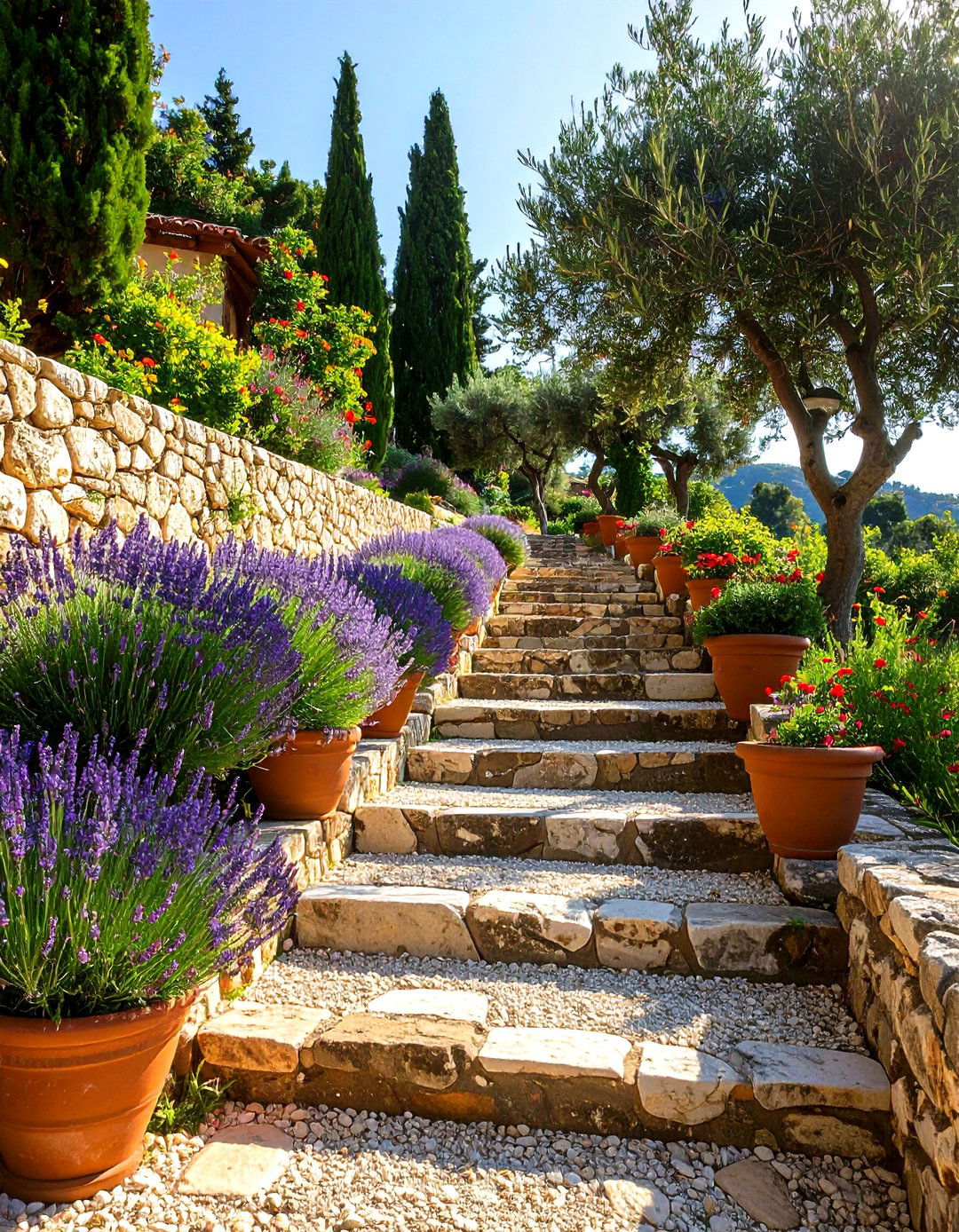
Create a Mediterranean paradise with natural stone retaining walls that showcase drought-tolerant plants and herbs. This timeless design features limestone or sandstone terraces filled with lavender, rosemary, and olive trees that thrive in sunny conditions. The stone walls provide excellent drainage while creating warm microclimates perfect for Mediterranean species. Add gravel pathways between levels and incorporate terracotta pots filled with bright geraniums and trailing ivy. The neutral stone tones complement the silvery foliage of native plants, creating a cohesive color palette. This style requires minimal irrigation once established, making it ideal for water-conscious gardeners seeking low-maintenance beauty.
2. Timber Sleeper Cottage Garden Terraces
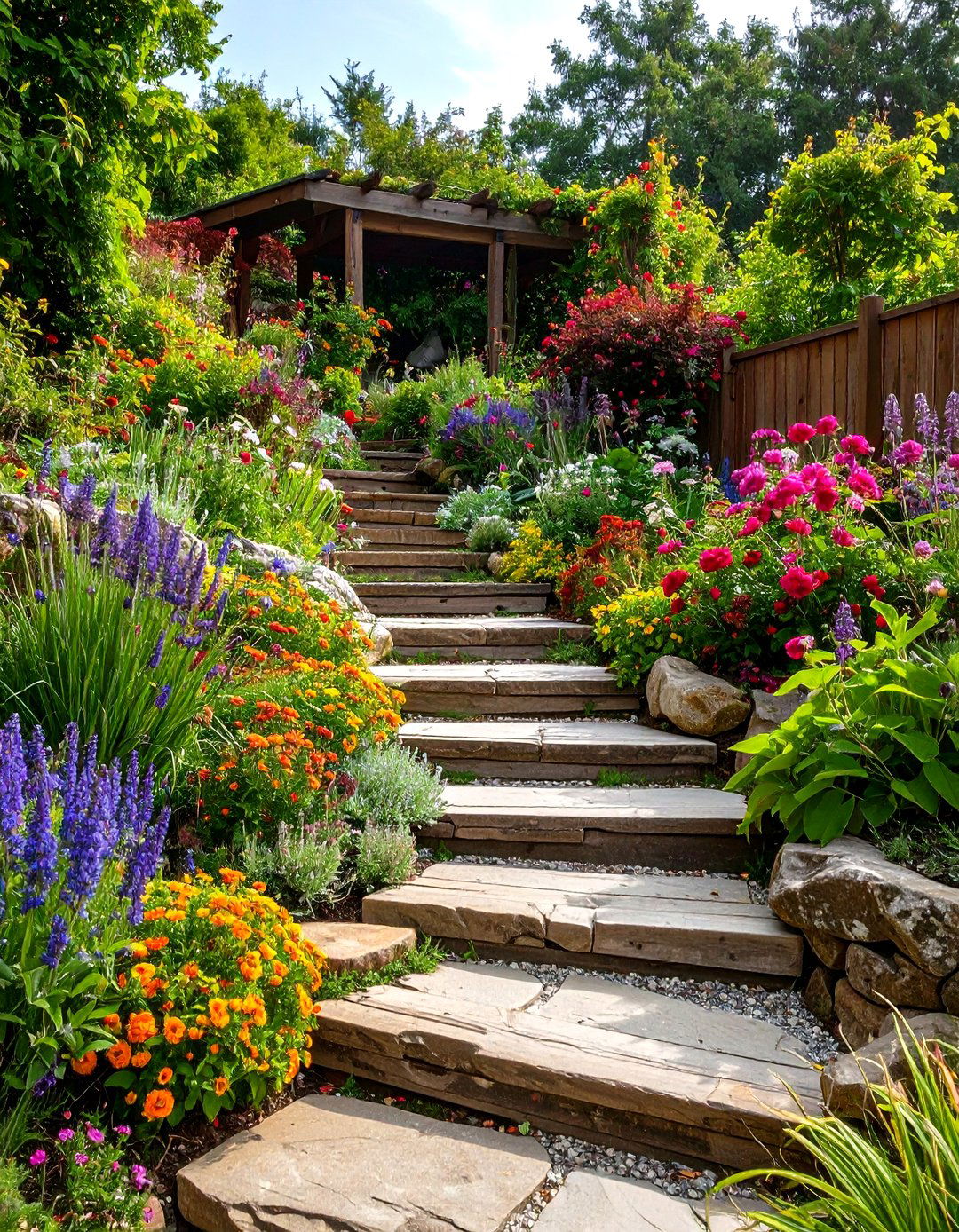
Transform your hillside with reclaimed timber sleepers that create rustic charm while supporting informal cottage garden plantings. These wooden terraces blend naturally with the landscape and provide excellent growing conditions for perennials, herbs, and vegetables. Fill each level with rich soil for growing tomatoes, strawberries, and colorful annuals like cosmos and sunflowers. The weathered wood creates a nostalgic atmosphere that complements climbing roses and sweet peas trailing over the edges. Include curved pathways made from stepping stones to enhance the informal cottage garden aesthetic. This approach maximizes growing space while maintaining accessibility for harvesting and maintenance throughout the seasons.
3. Bamboo and Ornamental Grass Hillside Design
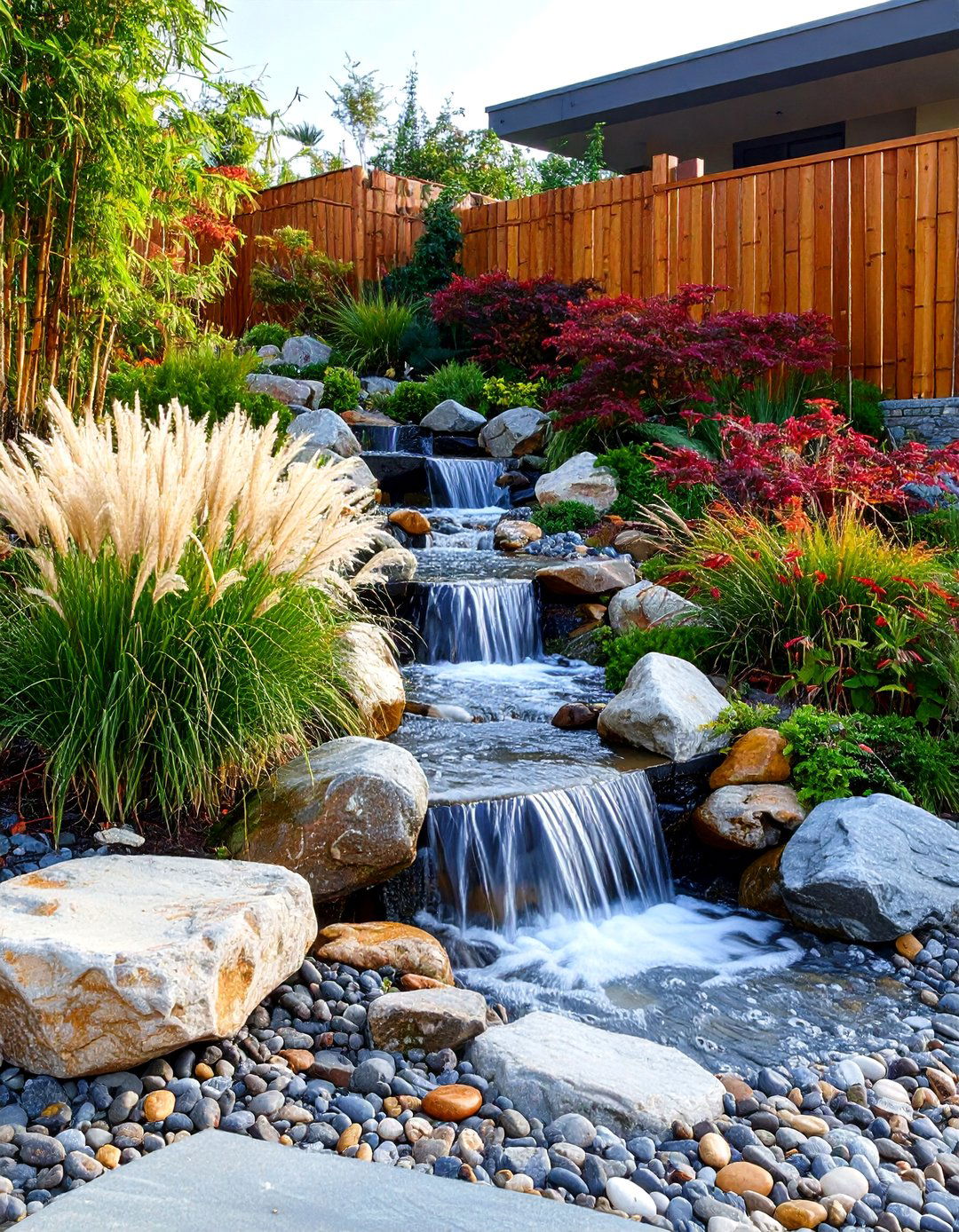
Design a modern Asian-inspired terraced garden using bamboo screens and ornamental grasses that create movement and texture on your slope. Plant clumping bamboo varieties like mountain bamboo alongside feathery grasses such as feather reed grass and switchgrass for year-round interest. Mountain bamboo is a clumping evergreen variety that isn't invasive—like its relatives—and can tolerate many conditions. Create clean lines with steel or concrete retaining walls and add river rock mulch between plantings. Include a small water feature with bamboo spouts to enhance the Zen atmosphere. The grasses provide natural erosion control while requiring minimal maintenance once established throughout the growing season.
4. Native Wildflower Slope Garden
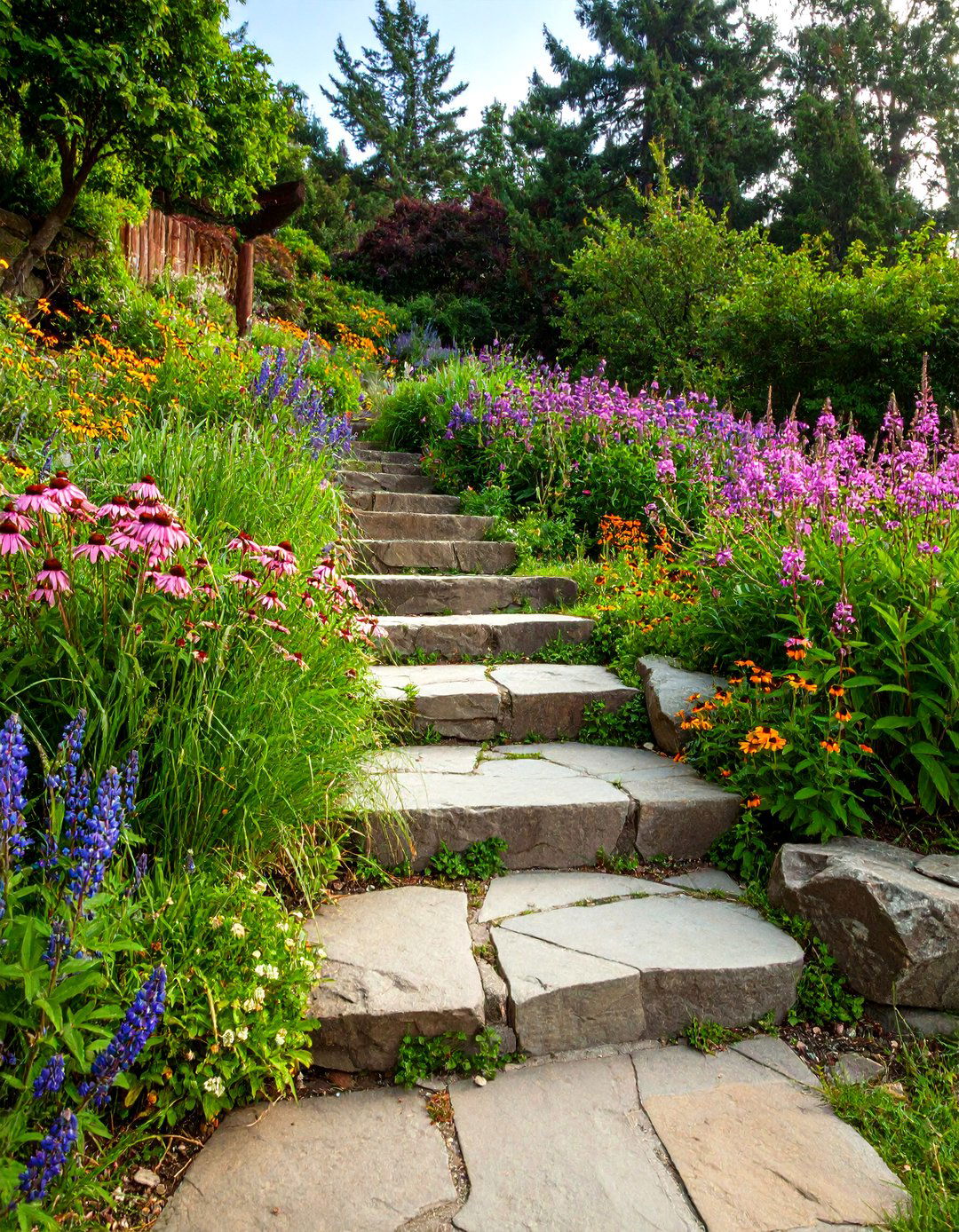
Establish a sustainable terraced garden using native wildflowers and grasses that support local pollinators while preventing erosion naturally. Select regional native plants that adapt to your specific climate conditions and soil type without requiring additional irrigation or fertilizers. Plants for slopes must perform many functions: control erosion, hold the slope, be drought-tolerant, and, since slopes are often in fire-risk areas, be firewise. Use natural stone or timber to create gentle terraces filled with purple coneflower, black-eyed Susan, and native grasses. Include pathways made from local materials and position benches at strategic viewpoints. This approach creates habitat for butterflies and birds while reducing maintenance requirements and supporting biodiversity throughout your landscape.
5. Succulent Rock Garden Terraces
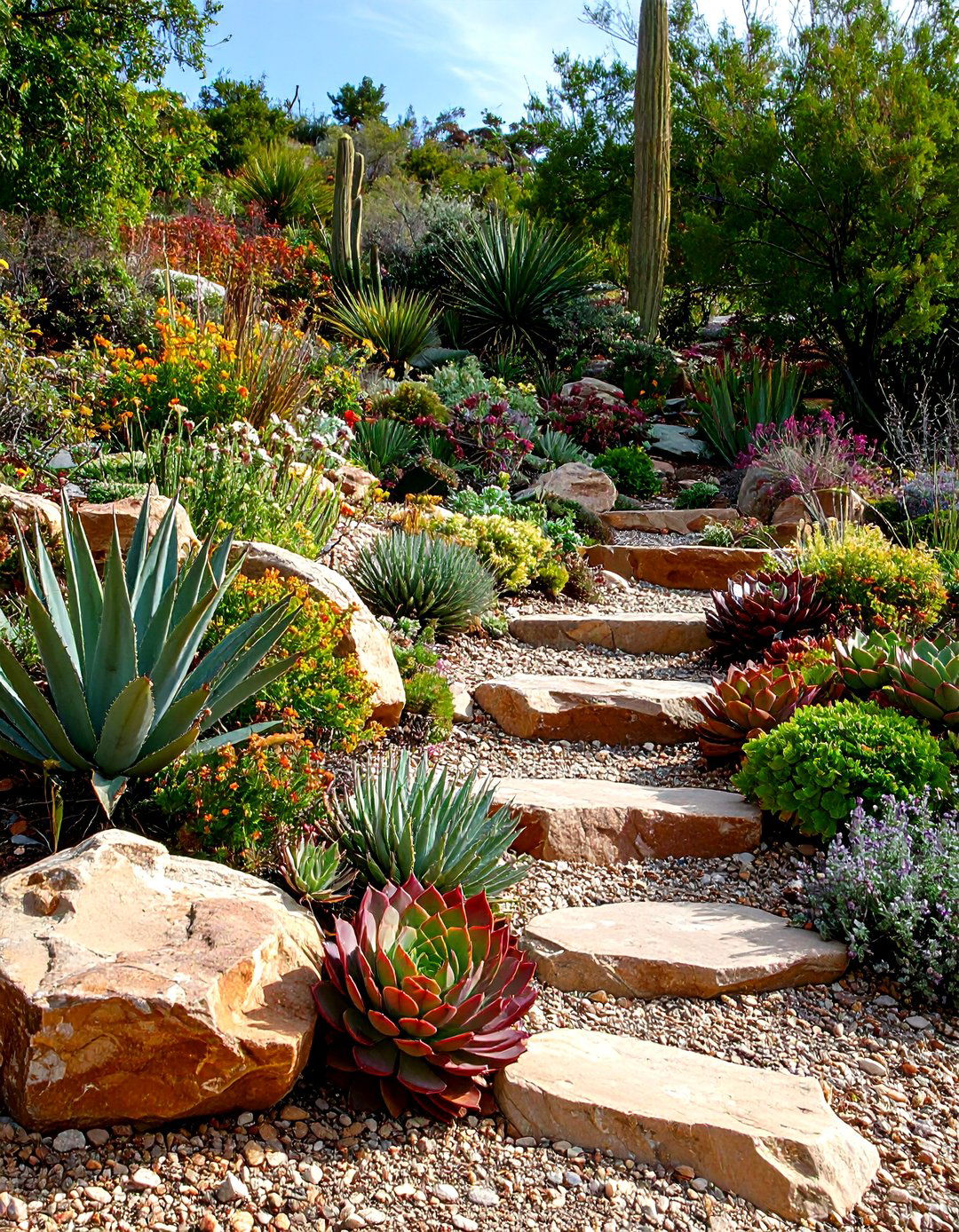
Build dramatic terraced gardens using a variety of succulents and cacti arranged among natural boulders and gravel for a desert-inspired landscape. This water-wise design thrives in sunny locations with excellent drainage provided by the sloped terrain and rocky materials. Plant various sedums, echeveria, and agave species that create interesting textures and colors throughout the seasons. There is a mind-boggling selection of succulent Sedums, many of which flower in late summer or fall. Use decomposed granite pathways and incorporate metal sculptures or ceramic pottery as focal points. The low-maintenance nature of succulents makes this style perfect for busy gardeners who want stunning visual impact with minimal watering requirements.
6. Vegetable Garden Terrace System
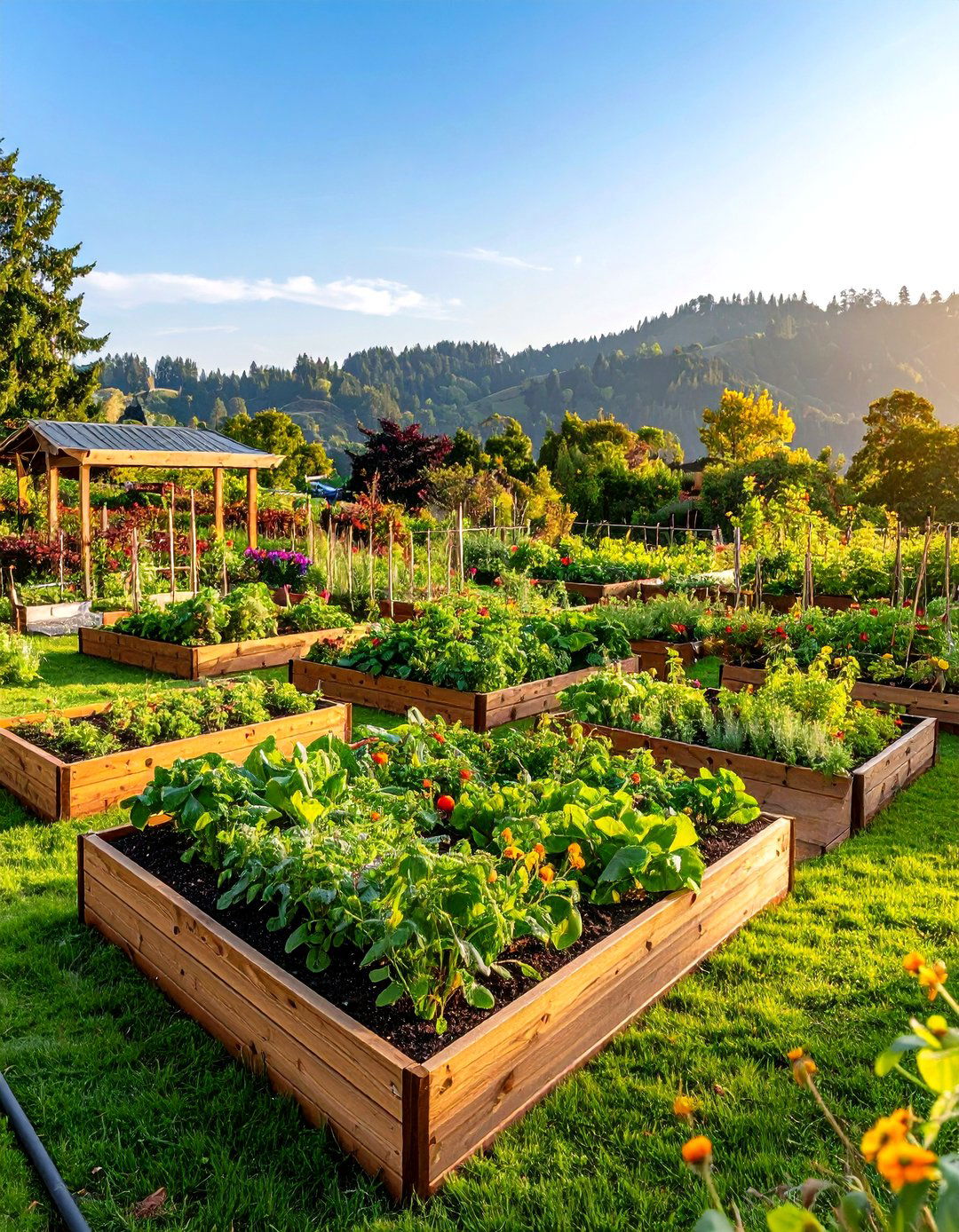
Create productive terraced vegetable gardens that maximize growing space while providing easy access for planting, maintenance, and harvesting throughout the growing season. Build raised beds using cedar or stone materials that warm the soil and extend the growing season for cool-weather crops. This spot is right out the back door, perfect for a kitchen garden, grab things before dinner or a quick snack as you walk to the chicken coop. Install drip irrigation systems that efficiently water each level while conserving water and reducing disease pressure. Include pathways wide enough for wheelbarrows and garden carts, and add trellises for climbing crops like beans and peas. This functional design combines beauty with productivity for year-round fresh produce.
7. Woodland Shade Garden Terraces
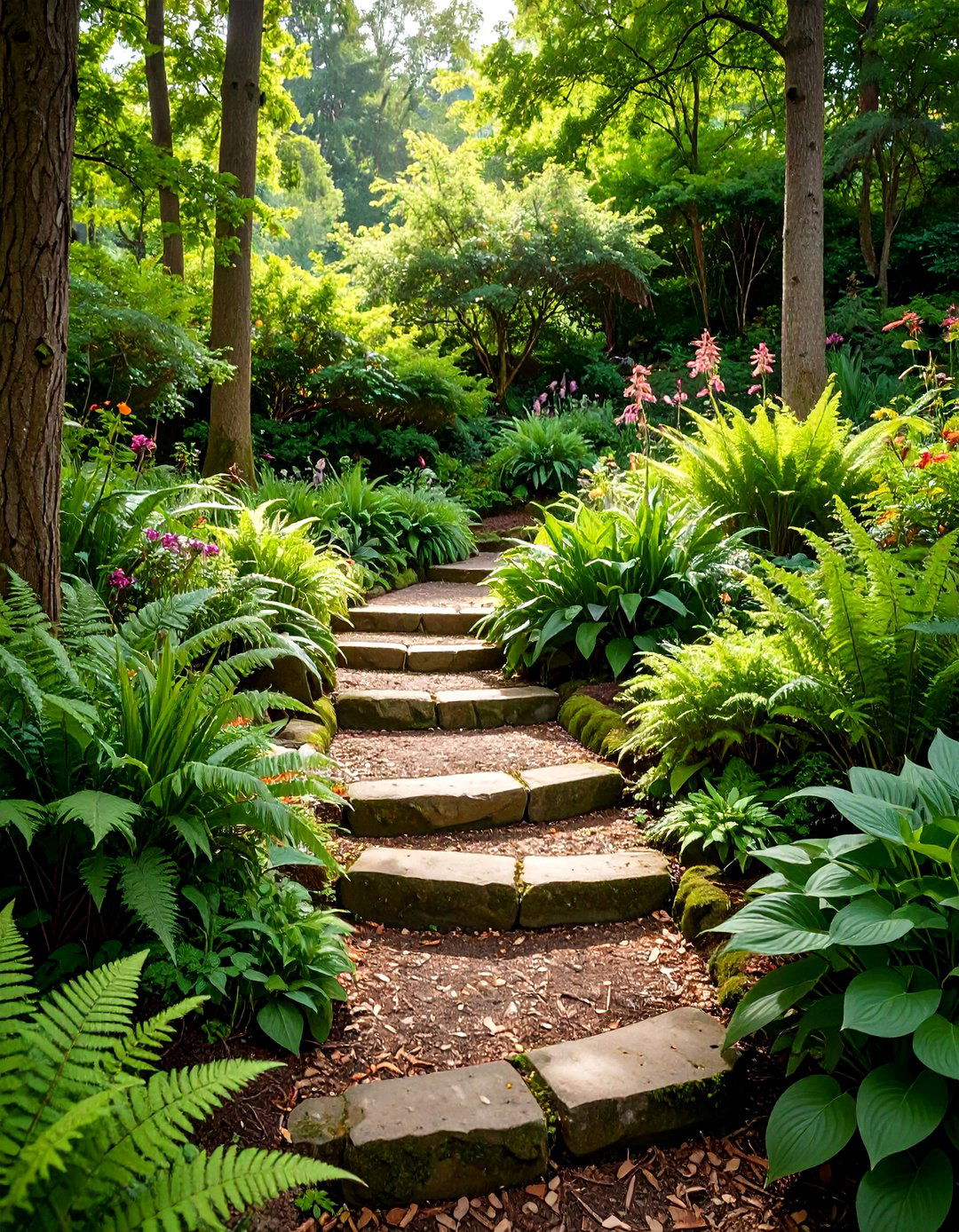
Design terraced gardens for shaded hillsides using native woodland plants that thrive in low-light conditions while providing year-round interest and erosion control. Plant ferns, hostas, and native groundcovers like wild ginger and pachysandra that spread naturally to stabilize the soil. Pachysandra is a classic groundcover plant that has a number of attractive qualities: the extensive spreading root system will stabilize the soil, the glossy foliage is shade tolerant and grows well under trees. Use natural stone or log retaining walls that blend with the forest environment, and create meandering pathways using bark mulch or flagstone. Include spring bulbs and shade-loving perennials for seasonal color bursts beneath established trees throughout the garden space.
8. Japanese Zen Garden Hillside
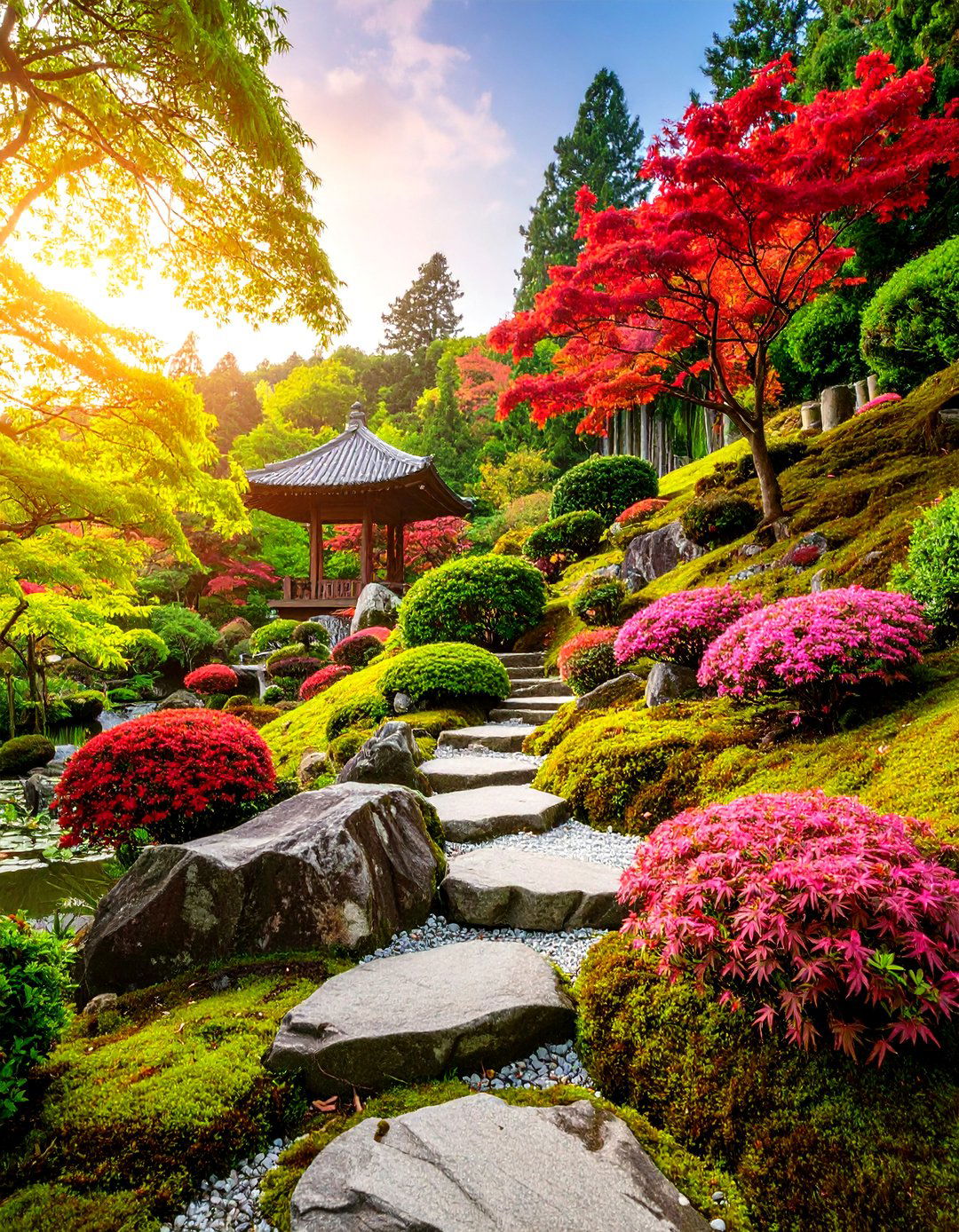
Construct a peaceful Japanese-inspired terraced garden featuring carefully placed stones, raked gravel, and minimal plantings that create a meditative outdoor space. Use clean lines and geometric shapes in your terrace design, incorporating elements like bamboo, Japanese maples, and ornamental grasses for subtle texture. Create focal points with carefully positioned boulders and add a small pond or dry creek bed to represent water elements. Japanese gardens use Zen-inspired stones, bamboo, and plants. These gardens often feature a pond or stream and are known for their peaceful and tranquil atmosphere. Include viewing areas with simple wooden benches positioned to take advantage of sight lines and seasonal changes. This contemplative style emphasizes simplicity and natural beauty while requiring minimal maintenance once established properly.
9. Perennial Flower Cascade Design
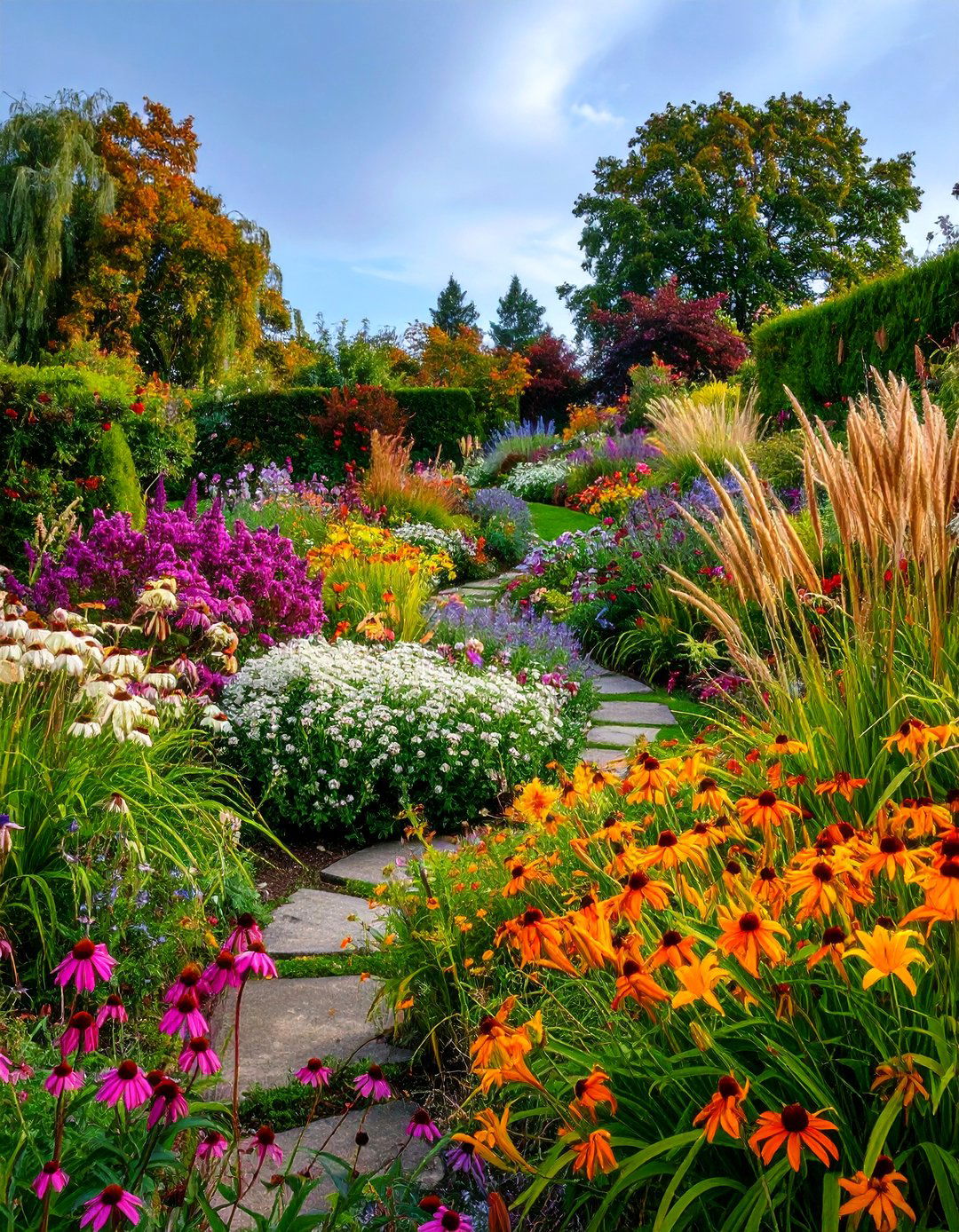
Create spectacular seasonal displays with terraced gardens featuring waves of perennial flowers that bloom in succession from spring through fall. Design each terrace with different bloom times to ensure continuous color, starting with spring bulbs and early perennials on upper levels. Plant summer bloomers like daylilies, coneflowers, and bee balm in middle terraces, while fall asters and sedums occupy lower levels. Use curved terrace edges and flowing pathways that mimic natural hillside contours for a more organic appearance. Include ornamental grasses as structural elements that provide winter interest and movement throughout the seasons while requiring minimal maintenance.
10. Herb Spiral Terraced Garden
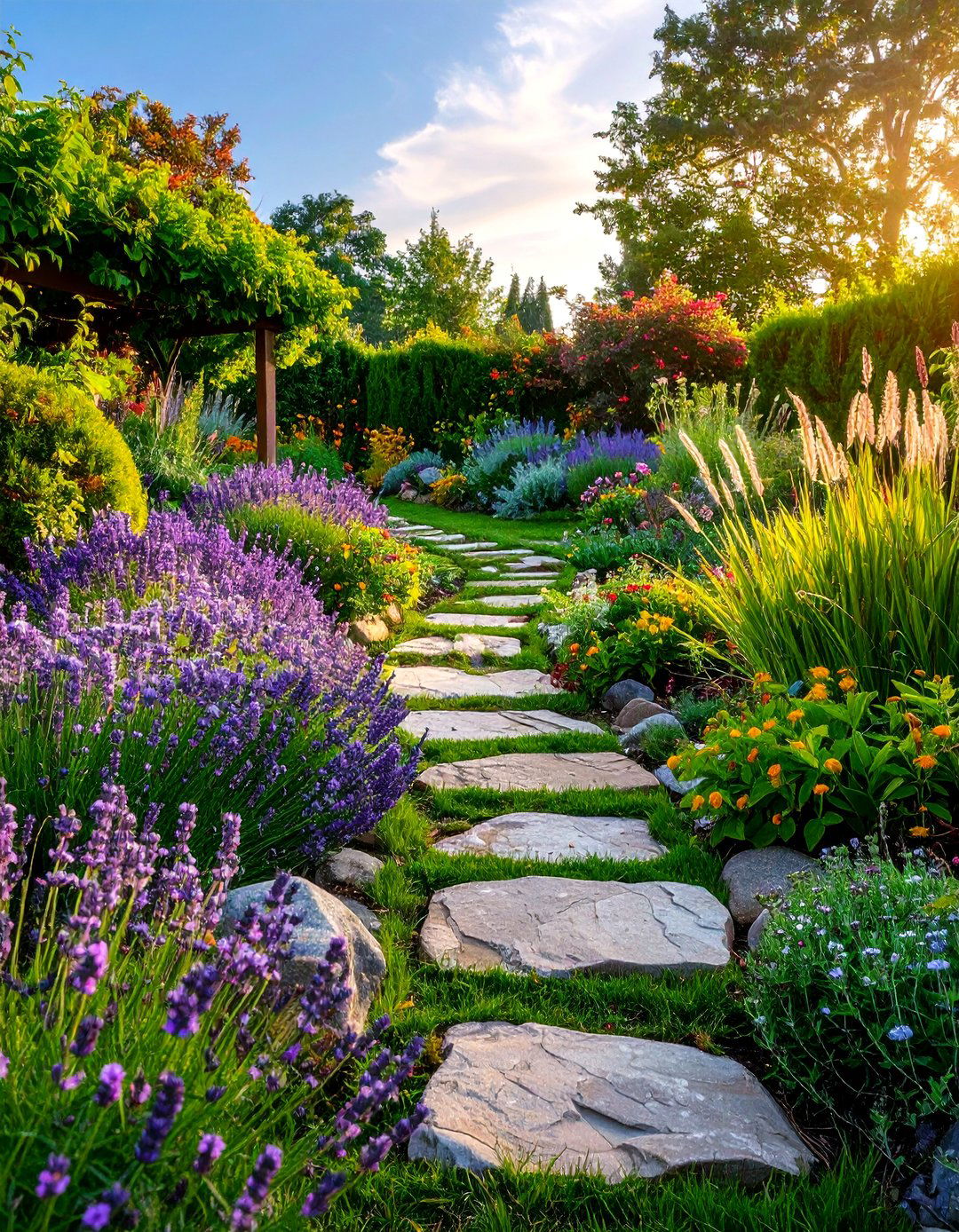
Build a productive herb garden using spiral-shaped terraces that create diverse microclimates for different culinary and medicinal herbs within a compact hillside space. Position Mediterranean herbs like thyme, oregano, and lavender on upper, drier levels while placing moisture-loving herbs like parsley and chives lower down. The soil at the base of the slope is often wetter than areas further up the hill. Use stone or brick materials to create the spiral structure, and include pathways that allow easy access for harvesting. Add aromatic plants like rosemary and sage near seating areas to enjoy their fragrances. This design maximizes herb production while creating an attractive focal point that serves both functional and aesthetic purposes throughout the growing season.
11. Rain Garden Terrace System
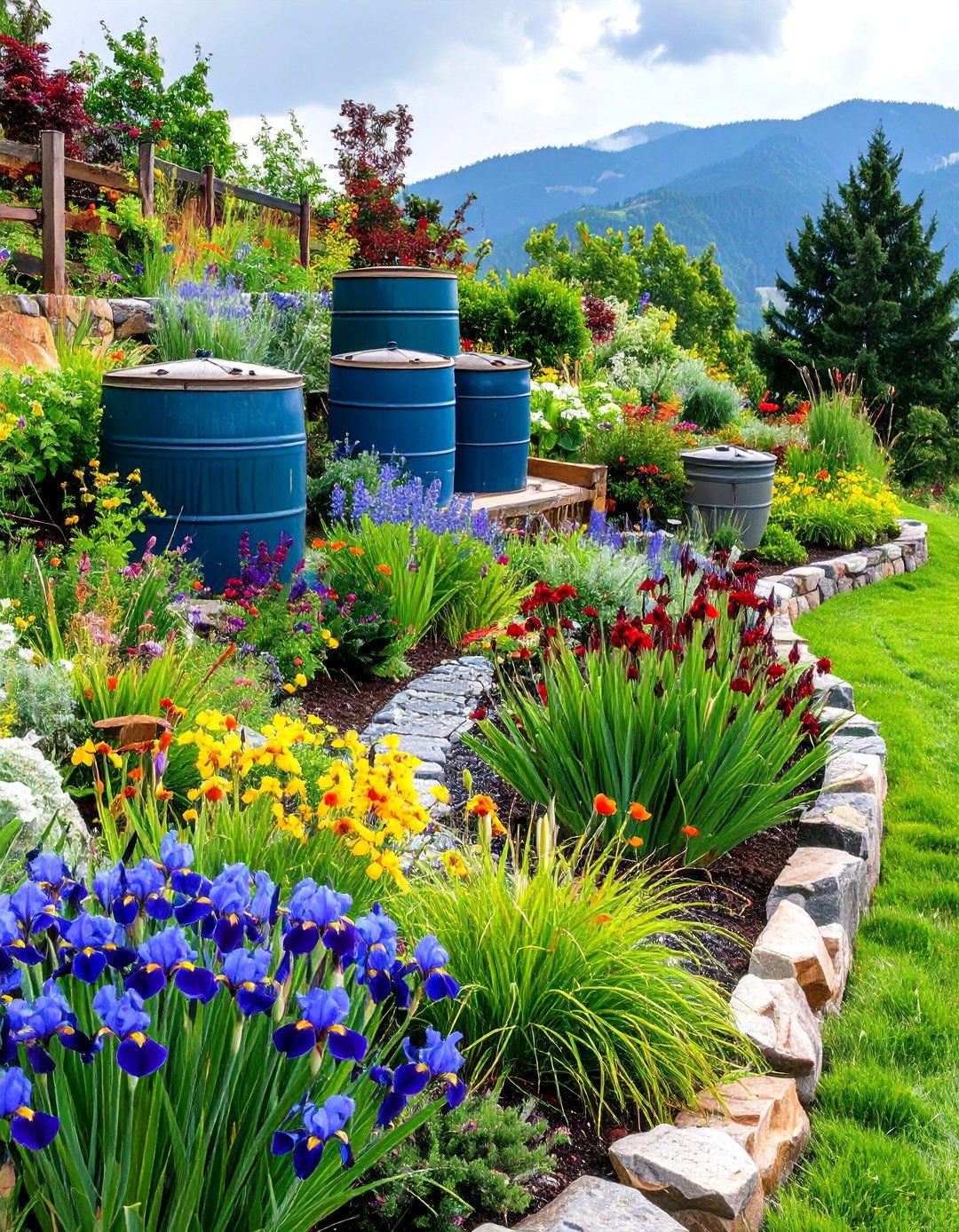
Design terraced gardens that capture and filter stormwater runoff while creating beautiful planted areas that support native plants and wildlife habitat. Build bioswales and retention areas using native plants that tolerate both wet and dry conditions throughout the year. In this method, logs and brush are laid across the hillside like a beaver dam and held in place with wooden stakes. Organic matter is added above the dam. Include plants like native iris, cardinal flower, and sedges that filter pollutants while providing habitat for beneficial insects and birds. Use permeable materials for pathways and incorporate rain barrels to capture water for dry periods. This sustainable approach manages water naturally while creating diverse ecosystems.
12. Formal English Garden Terraces
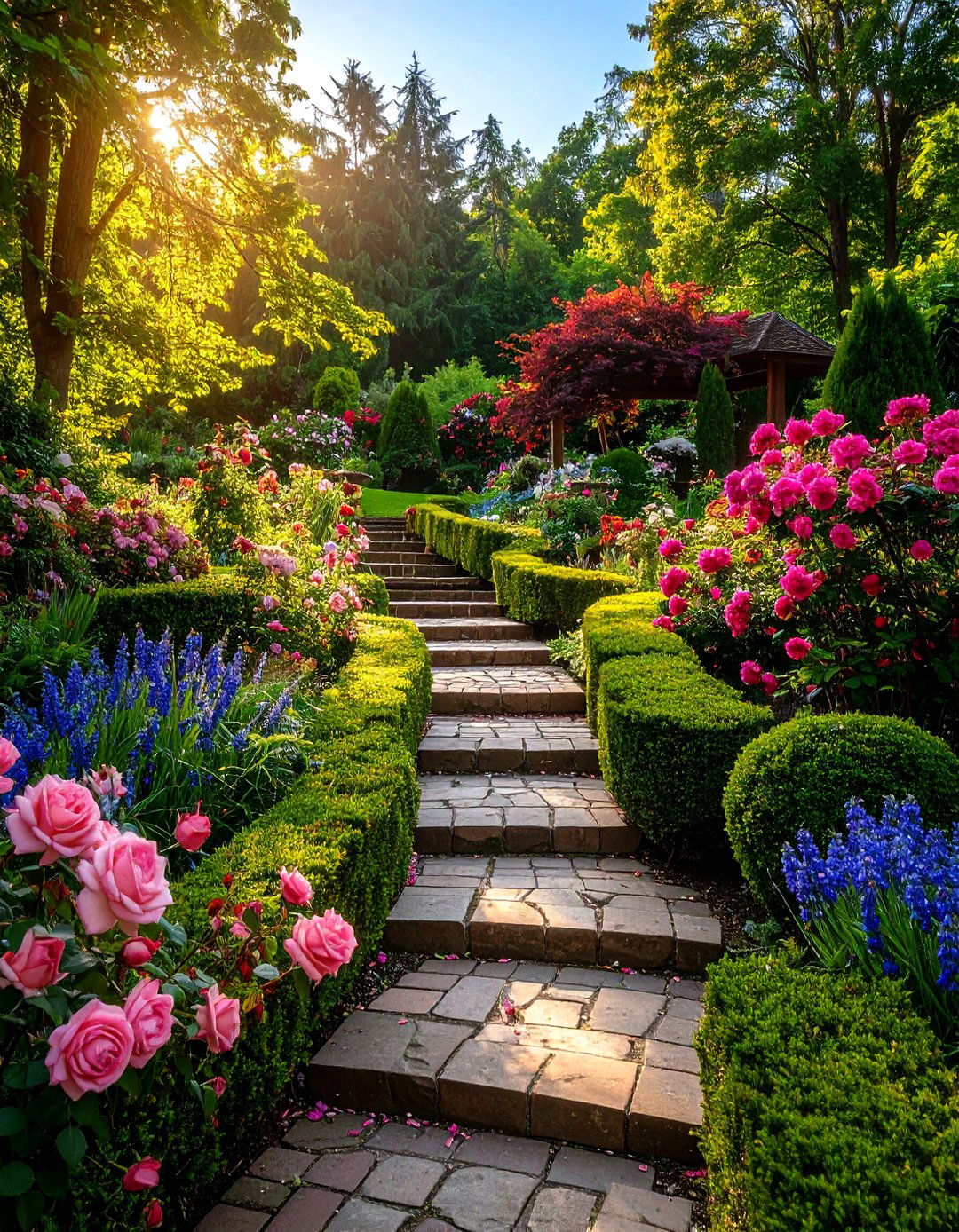
Create elegant formal terraced gardens featuring symmetrical designs, clipped hedges, and structured plantings that showcase classic English garden principles on your hillside. Use boxwood hedging to define geometric beds filled with roses, delphiniums, and other traditional perennials arranged in orderly patterns. English gardens use formal pathways, symmetrical beds, and a mix of perennials and annuals. Install brick or stone pathways with precise edges and add classical elements like urns, sundials, or topiary specimens as focal points. Include climbing roses and clematis on trellises to add vertical interest while maintaining the formal structure. This sophisticated style requires regular maintenance but creates timeless elegance that complements traditional home architecture beautifully.
13. Groundcover Erosion Control Terraces
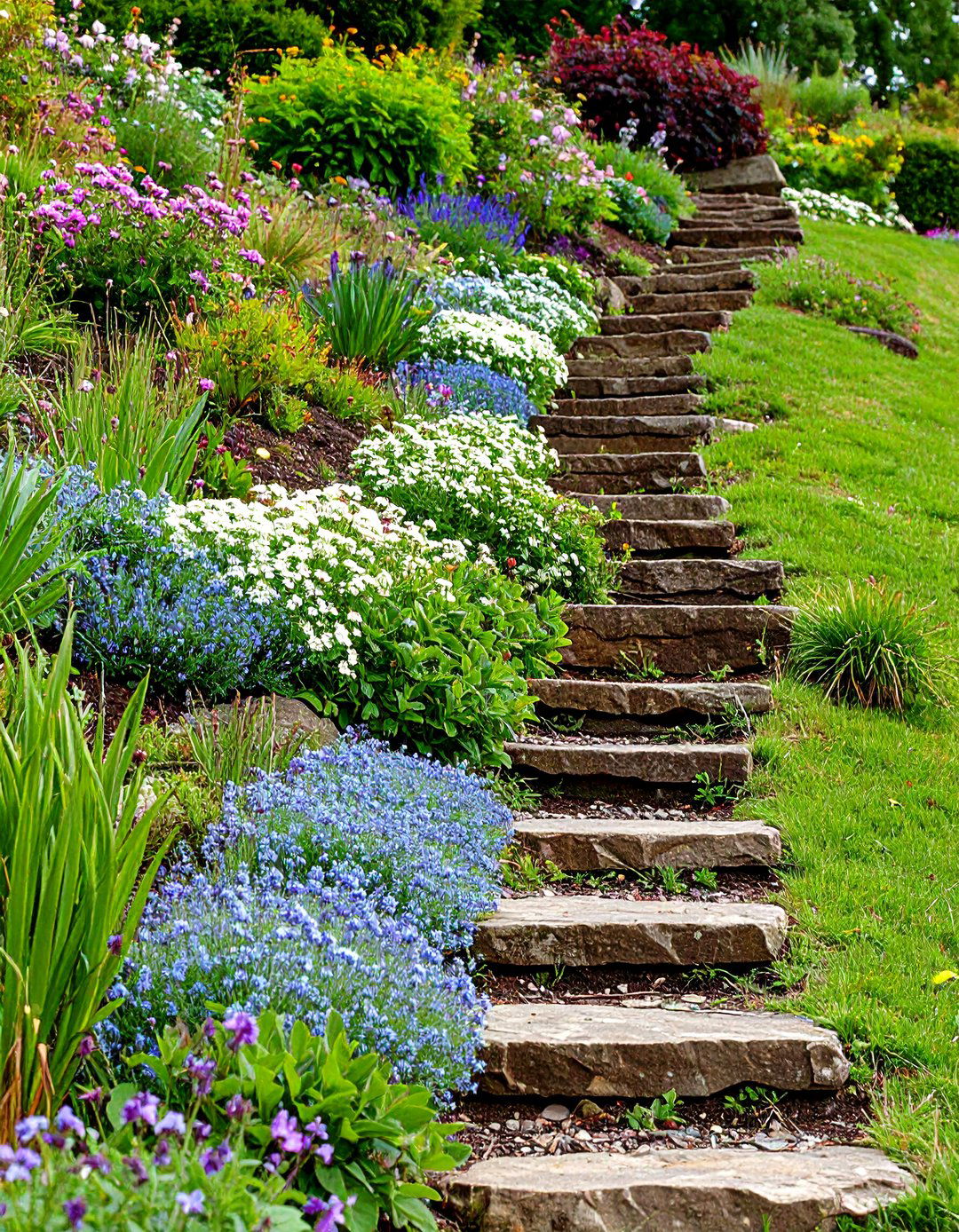
Establish low-maintenance terraced gardens using spreading groundcovers that quickly colonize slopes while preventing soil erosion and reducing maintenance requirements over time. Plant vigorous spreaders like creeping phlox, ajuga, and vinca that form dense mats while providing seasonal flowers and year-round coverage. The benefits of using a groundcover are numerous, they provide a stabilizing element to the landscape and cutting down on erosion. Use minimal retaining structures and focus on plant selection that naturally holds soil in place through extensive root systems. Include pathways made from stepping stones or mulched trails that allow access without damaging the plantings. This approach creates attractive coverage with minimal input once established.
14. Ornamental Tree Hillside Garden

Design terraced gardens featuring small ornamental trees that provide structure, seasonal interest, and wildlife habitat while adapting to sloped terrain conditions naturally. Select trees like Japanese maples, flowering dogwoods, and dwarf fruit trees that won't overwhelm the space but provide significant visual impact. Small, hardy trees like silver birch or Japanese maple can add height and a focal point without overwhelming the space. Underplant with shade-tolerant perennials and bulbs that complement the tree canopy and provide seasonal color throughout the year. Create viewing areas and pathways that showcase the trees from different angles while providing access for maintenance. This approach adds vertical dimension and creates habitat while requiring moderate maintenance once trees are established properly.
15. Rock Wall Alpine Garden Terraces
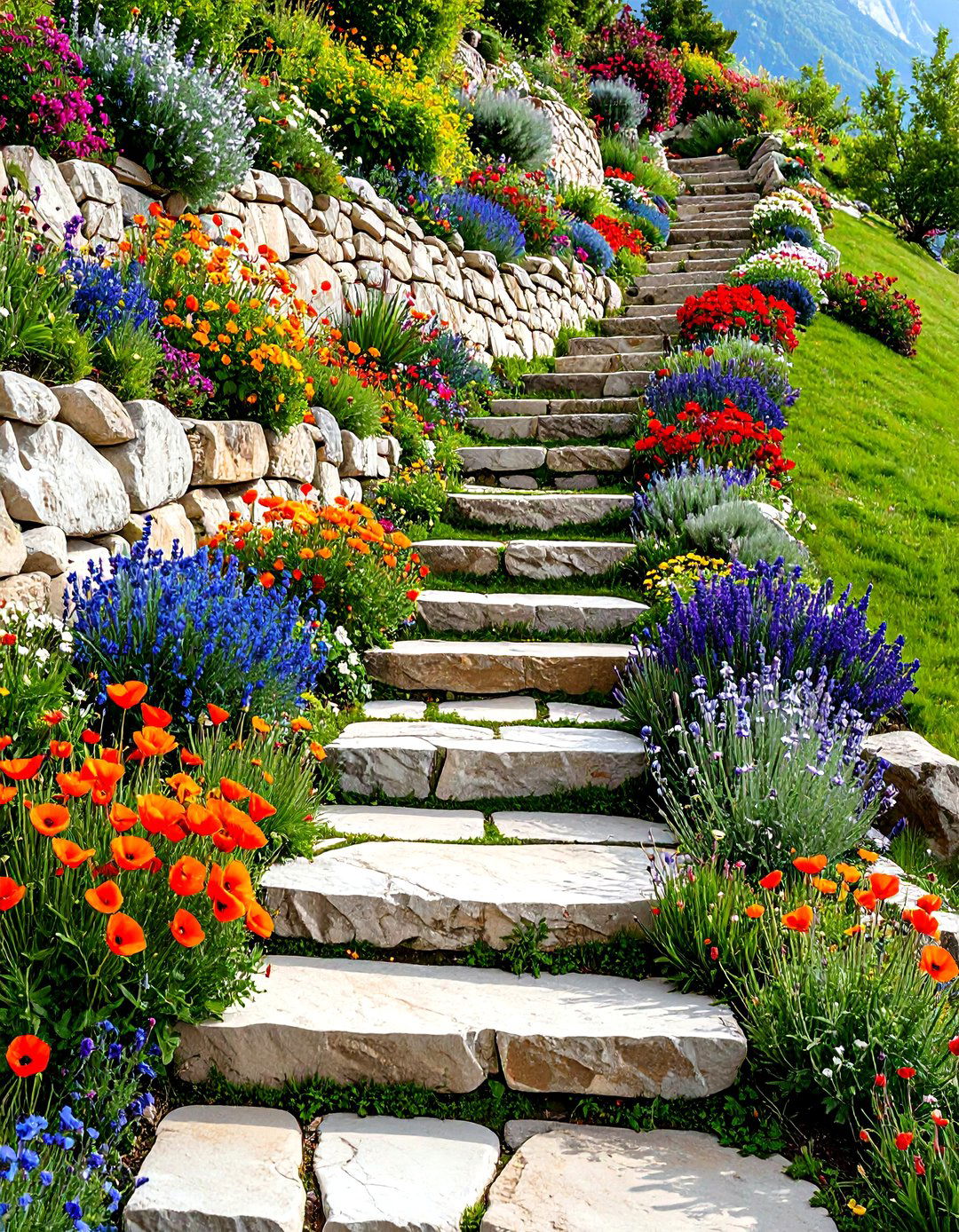
Construct terraced gardens using natural stone walls that create perfect conditions for alpine plants and rock garden specimens that thrive in well-drained conditions. Build crevice gardens between stones where small alpines like saxifrage, alpine poppies, and sedums can establish naturally over time. Stone has been the building material of choice since humans first stacked stones on top of each other to make a rudimentary shelter. Include scree slopes and gravel mulches that mimic mountain conditions while providing excellent drainage for specialized plants. Add pathways using flagstone or gravel that complement the rocky theme while providing access to different garden areas. This specialized approach creates unique growing conditions for plants that wouldn't thrive in typical garden situations.
16. Water Feature Cascade Terraces
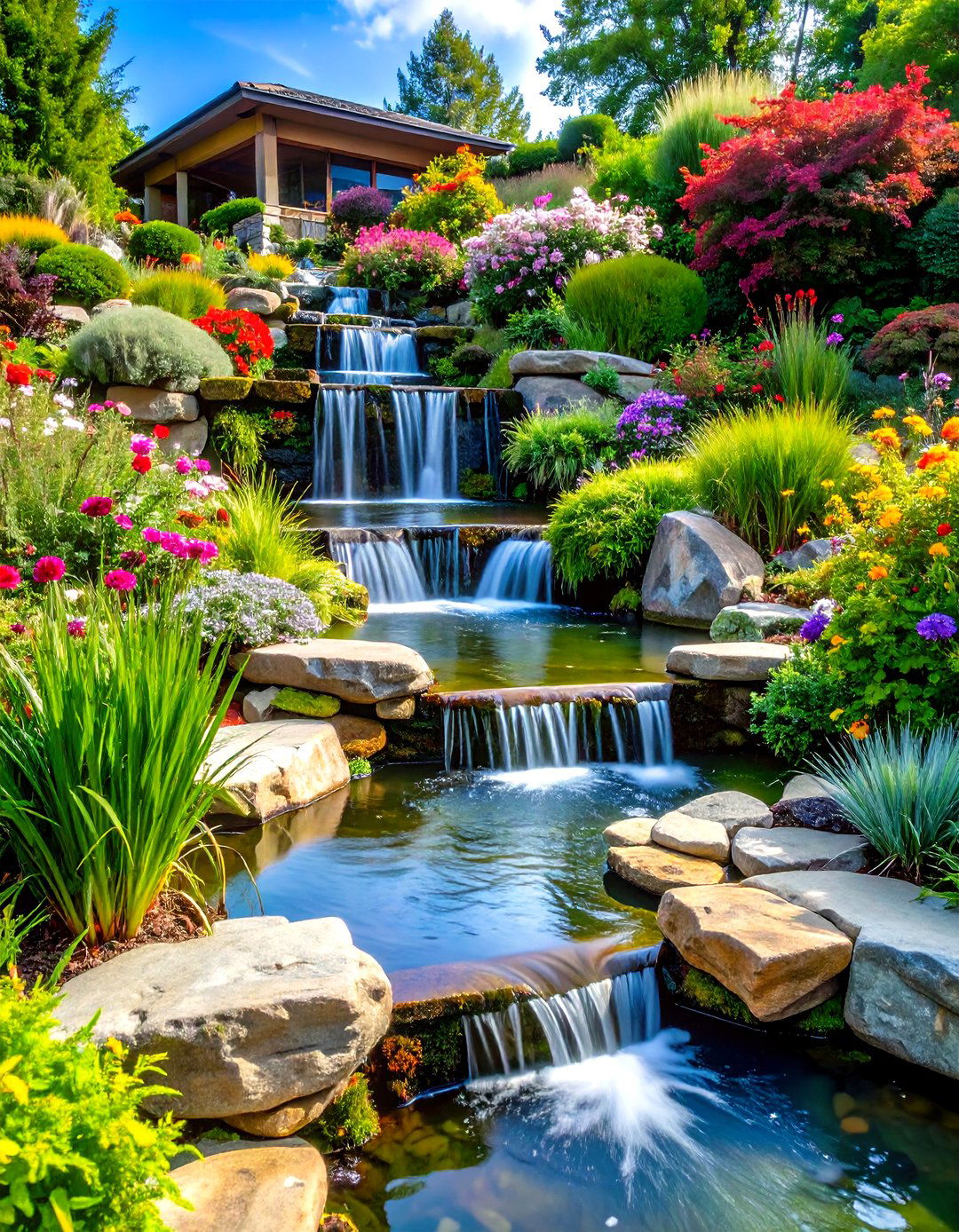
Integrate water features throughout your terraced hillside garden to create soothing sounds while utilizing gravity to move water naturally between levels. Design small ponds, streams, or fountains that connect different terraces while providing irrigation for plants and habitat for wildlife. Water features always create visual interest in a garden but they are especially well suited to terraced gardens. Little waterfalls or fountains complement the idea of a slope. Use natural materials like stone and river rock to create naturalistic water courses that appear to flow naturally down the hillside. Include aquatic plants like water lilies and cattails that filter water while adding beauty. Position lighting to highlight water features during evening hours for extended enjoyment throughout the seasons.
17. Pollinator Paradise Terrace Garden
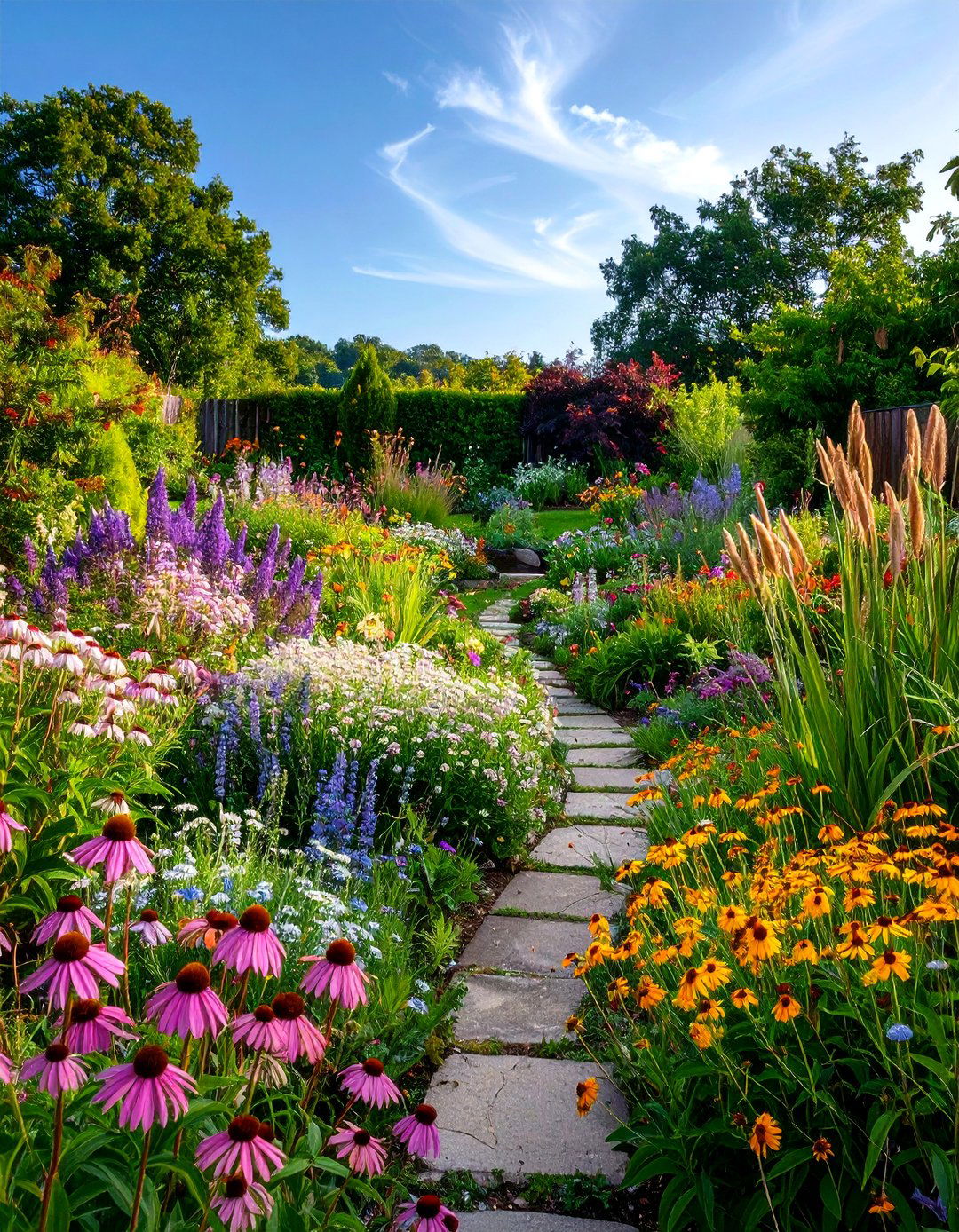
Create terraced gardens specifically designed to support bees, butterflies, and other beneficial insects with continuous blooms and diverse native plant communities throughout the growing season. Plant native flowers like purple coneflower, bee balm, and asters that provide nectar and pollen while supporting local ecosystem health. Include host plants for butterfly larvae and nesting sites for native bees using hollow stems and brush piles. These plants are generally around five to six feet wide or more, but only one to three feet high. Add shallow water sources and sunny basking areas for butterflies while avoiding pesticide use throughout the garden. This approach creates beautiful displays while supporting biodiversity and natural pest control for surrounding areas.
18. Seasonal Color Wave Terraces
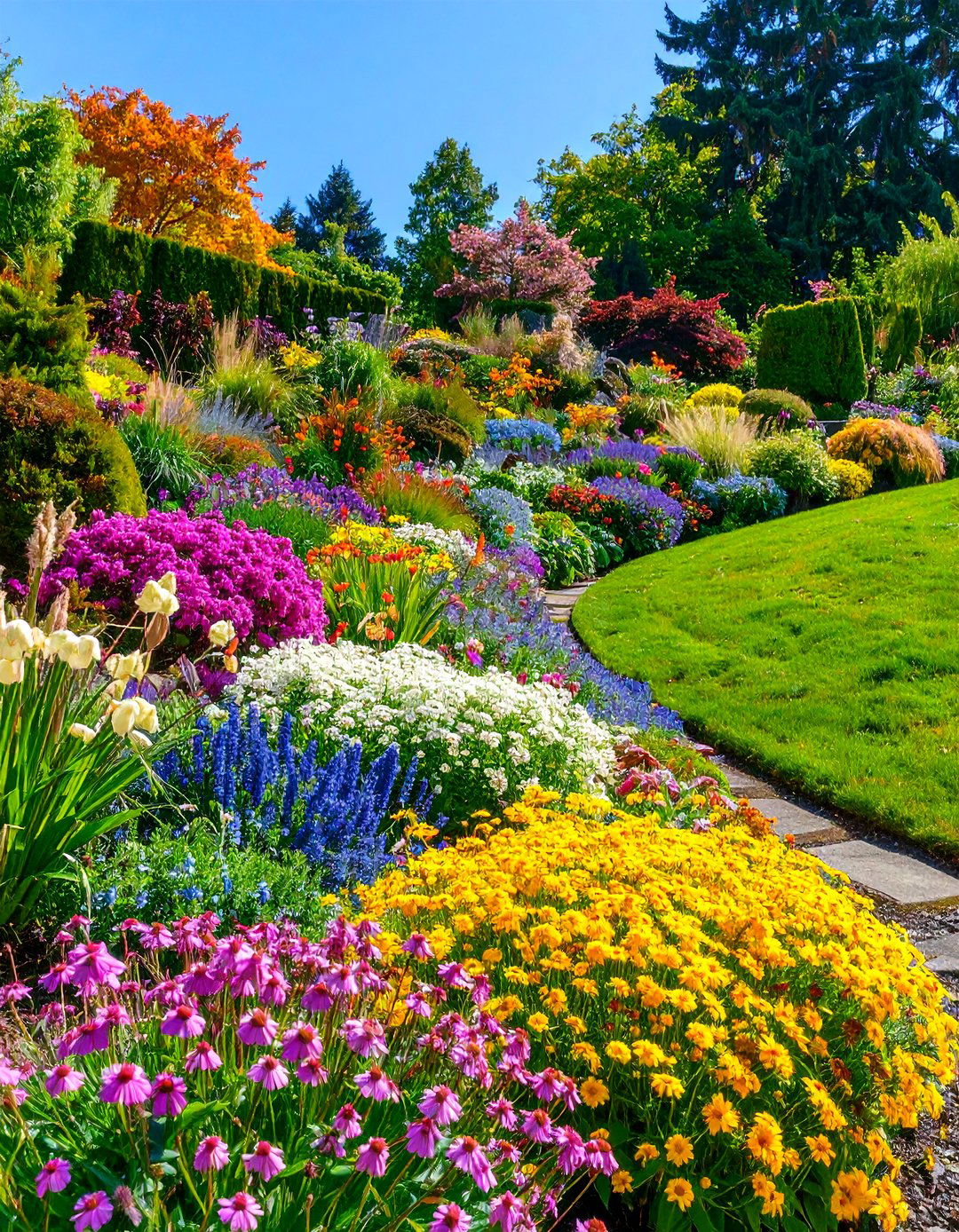
Design terraced gardens that showcase different color themes throughout the seasons, creating spectacular displays that change dramatically as the year progresses from spring emergence to winter dormancy. Plan spring terraces with bulbs and early perennials in cool colors, summer levels with hot-colored annuals and perennials, and fall areas with warm-toned asters and grasses. Include evergreen elements and plants with interesting winter structure to maintain visual appeal during dormant months. Use color theory principles to create harmonious combinations while ensuring continuous interest throughout the growing season. This approach requires careful planning but provides endless seasonal entertainment and photography opportunities for garden enthusiasts.
19. Edible Landscape Hillside Terraces

Combine beauty with productivity in terraced gardens featuring edible plants that provide food while creating attractive landscapes throughout the growing season. Include fruit trees, berry bushes, and perennial vegetables that produce for many years while requiring minimal replanting efforts. Plant strawberries as groundcover, asparagus for vertical interest, and herbs throughout for culinary use and natural pest control benefits. You can use retaining walls, natural stone, boulders, water features, and irrigation systems to give your plants the attention they need. Add pathways wide enough for harvest carts and include storage areas for garden tools and supplies. This functional approach creates beautiful landscapes while providing fresh, organic produce for the kitchen throughout multiple seasons.
20. Modern Minimalist Terrace Design
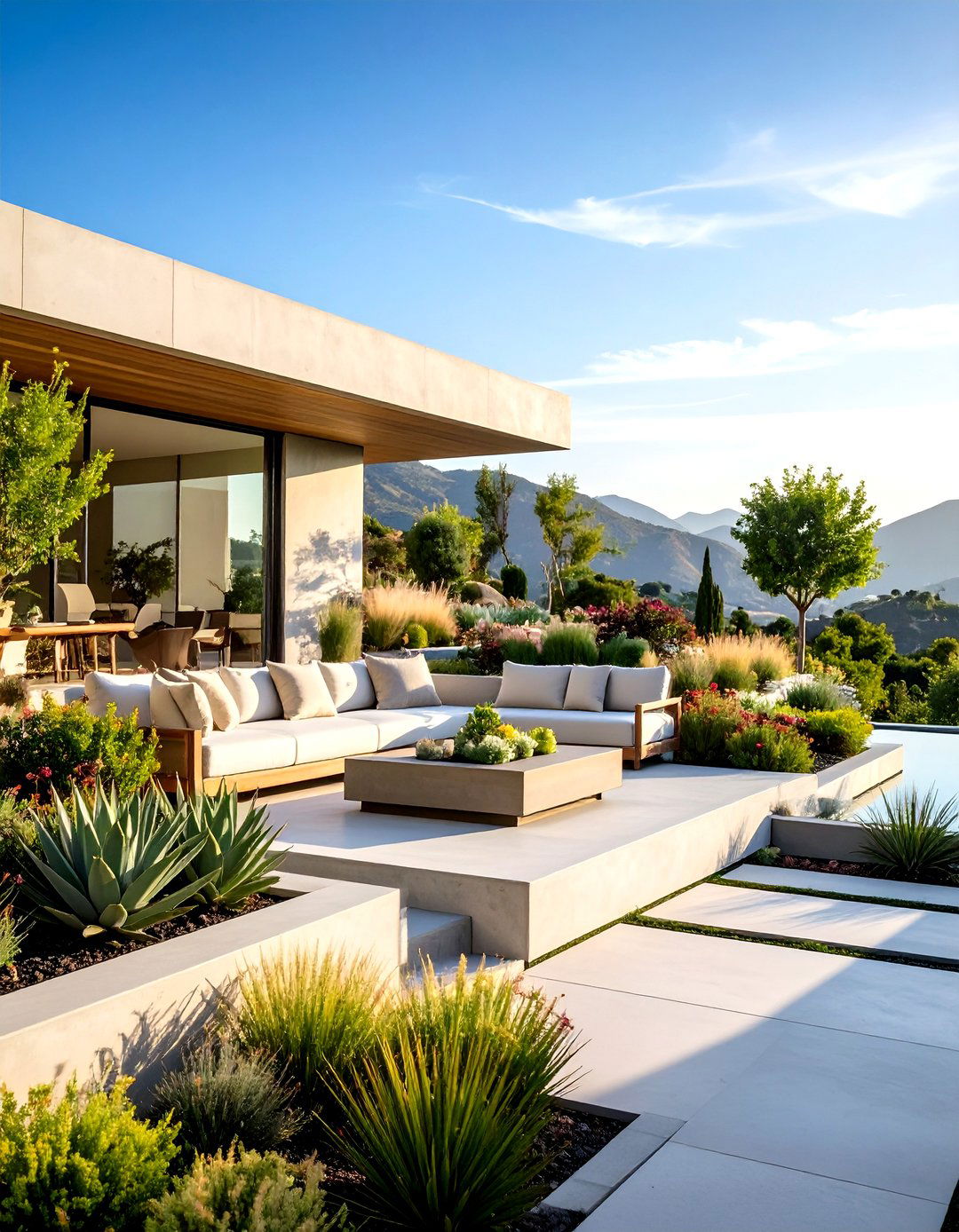
Create sleek contemporary terraced gardens using clean lines, limited plant palettes, and modern materials that complement modern home architecture while providing low-maintenance beauty. Use concrete, steel, or composite materials for retaining walls and combine with architectural plants like ornamental grasses, agaves, and structured perennials. If you prefer the modern feel and want to achieve a contemporary look in your terraced garden, large neutral-coloured stone tiles can do just that. Include geometric pathways and minimal color schemes that emphasize form and texture over abundant blooms. Add contemporary outdoor furniture and lighting that extends the living space into the garden while maintaining the clean aesthetic throughout all seasons.
21. Wildlife Habitat Terraced Garden
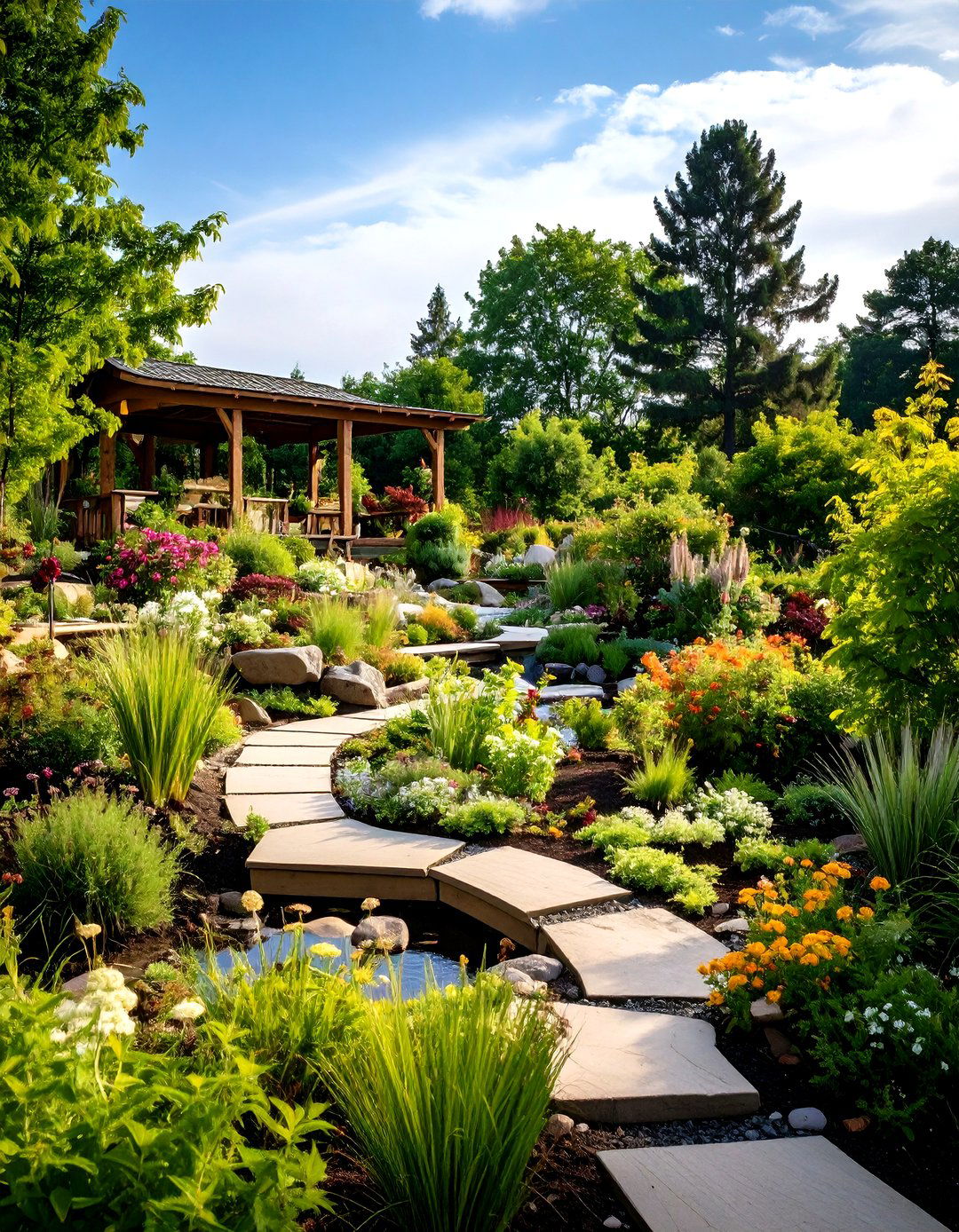
Design terraced gardens that provide food, shelter, and nesting sites for local wildlife while creating beautiful natural landscapes that support biodiversity throughout the property. Include native trees, shrubs, and perennials that provide berries, seeds, and nectar for birds, butterflies, and beneficial insects. Create brush piles, rock walls, and water sources that offer shelter and breeding sites for various species throughout the year. Water features can also attract wildlife, adding another element to improve the biodiversity of your garden. Plant host plants for native butterflies and leave seed heads standing through winter for bird food. This approach creates dynamic ecosystems while providing endless opportunities for wildlife observation and nature education.
22. Fragrant Garden Hillside Terraces
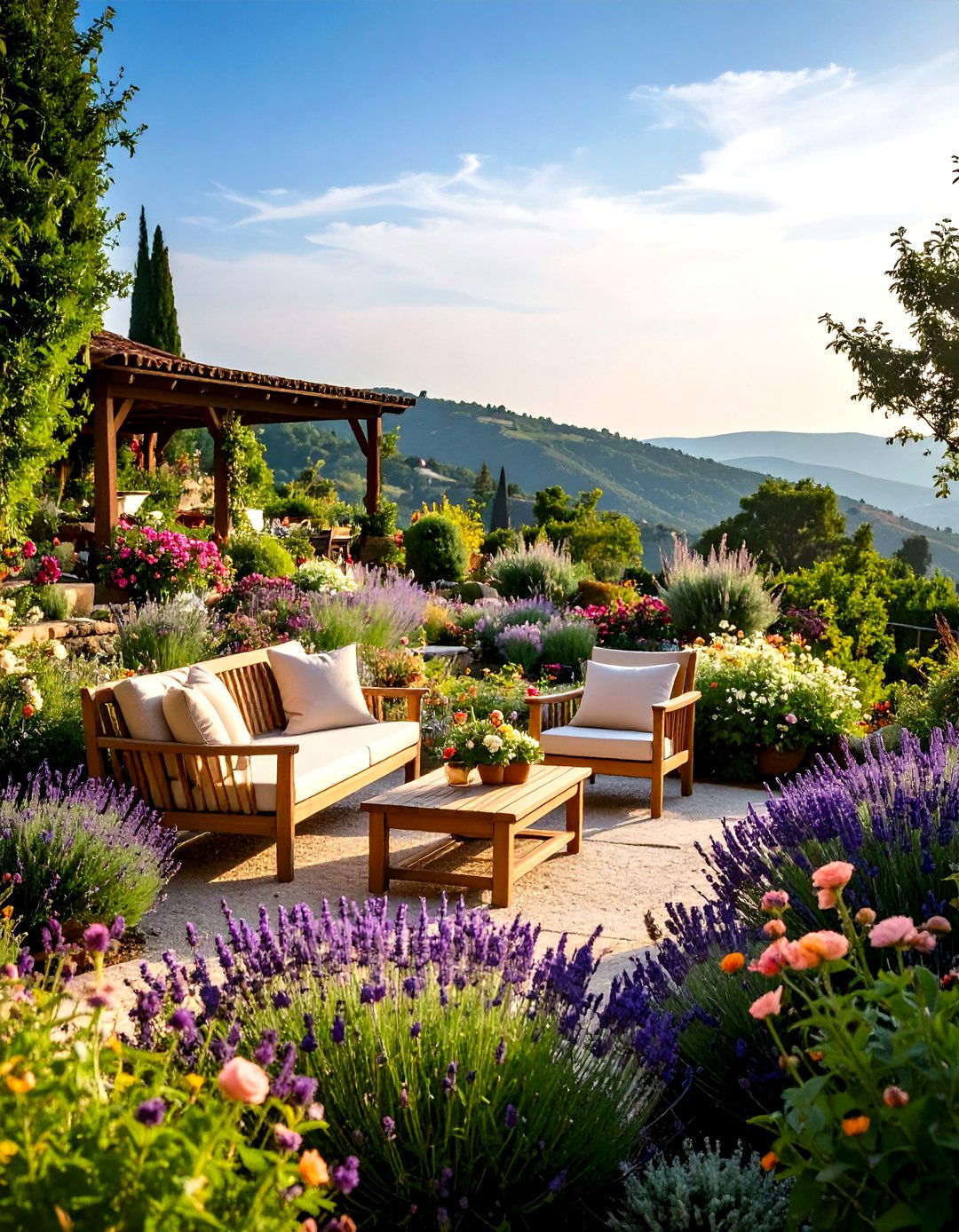
Build terraced gardens featuring aromatic plants that create sensory experiences while providing natural pest control and therapeutic benefits throughout the growing season. Include lavender, rosemary, and other Mediterranean herbs on upper terraces where drainage is excellent and sun exposure is maximum. Plant fragrant roses, jasmine, and honeysuckle in middle areas where moisture levels support their growth requirements. Add mint, lemon balm, and other aromatic groundcovers in lower, moister areas where they can spread naturally. Position seating areas strategically to enjoy different fragrances throughout the day and include pathways that release scents when brushed. This sensory approach creates memorable experiences while supporting beneficial insects and natural garden health.
23. Four Season Interest Terrace Garden
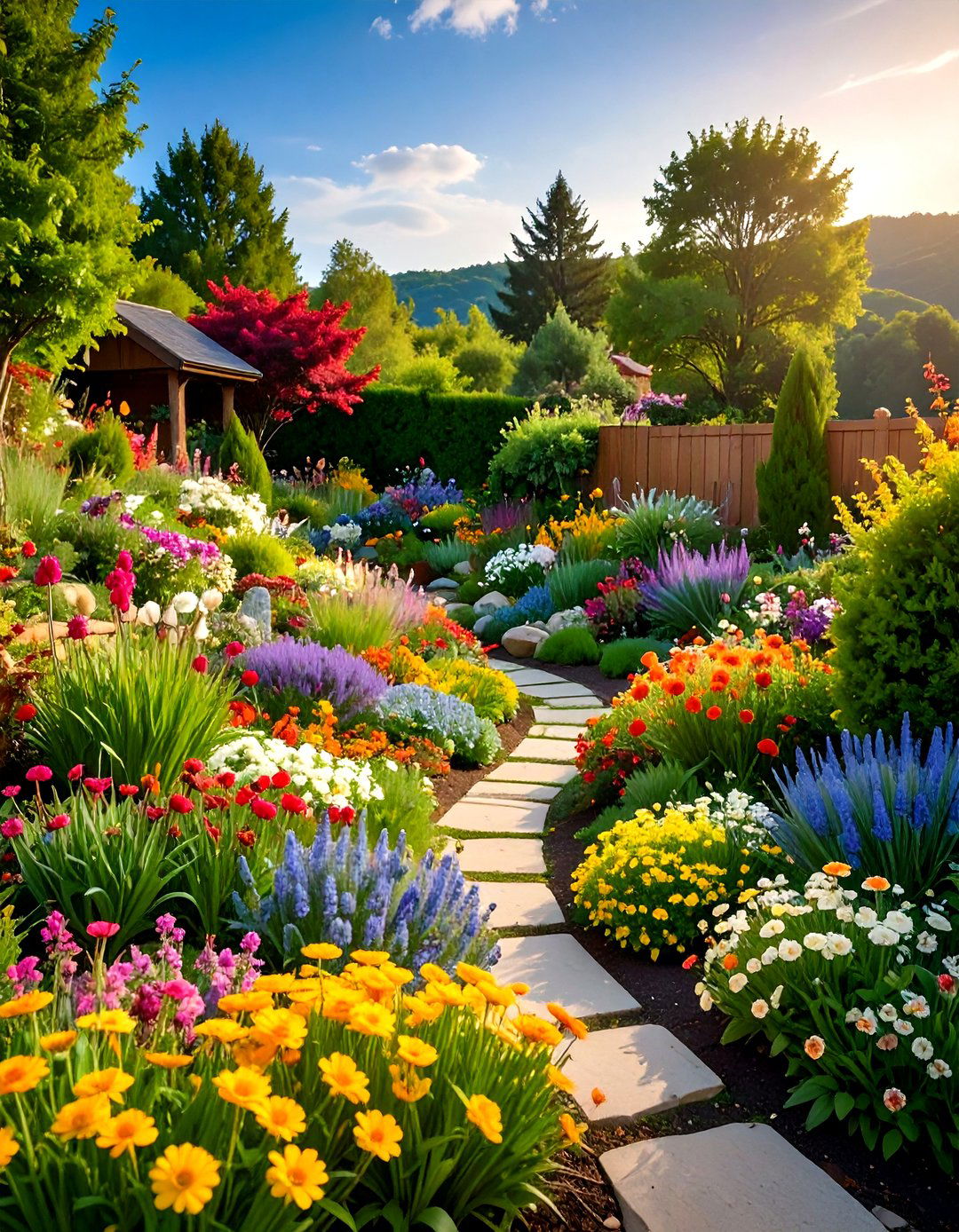
Plan terraced gardens that provide visual appeal throughout the entire year with careful selection of plants that offer spring flowers, summer foliage, fall color, and winter structure. Include spring bulbs and flowering trees for early season interest, summer perennials and annuals for peak growing season color, and fall-blooming plants with colorful foliage for autumn displays. Embrace this by planning a rotating display of flowers and foliage. Maybe in spring, you focus on bright bulbs like daffodils or tulips that fill your terraces with color. Add evergreen elements, ornamental grasses, and plants with interesting bark or seed heads for winter appeal. This comprehensive approach ensures your terraced garden remains attractive and engaging throughout all seasons while requiring strategic planning and plant selection.
24. Therapeutic Healing Garden Terraces
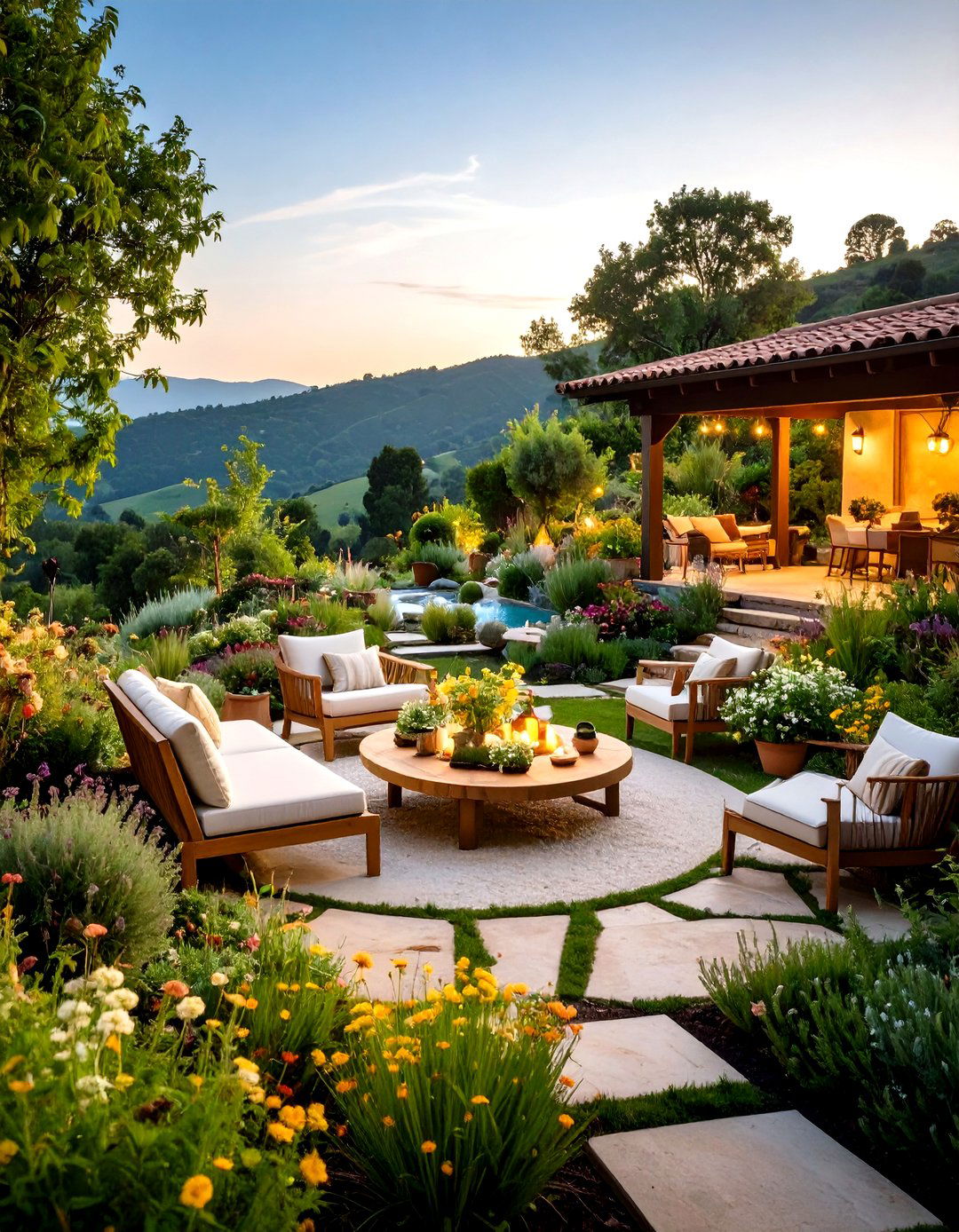
Create terraced gardens designed for relaxation, meditation, and therapeutic benefits using plants and design elements that promote physical and mental well-being throughout the seasons. Include medicinal herbs, aromatherapy plants, and flowers in colors known to reduce stress and promote calm feelings. Add comfortable seating areas positioned to take advantage of views and breezes while providing privacy and tranquility. The sound of flowing water is calming and attracts wildlife. Include gentle water features, wind chimes, and textural plants that engage multiple senses while creating peaceful environments. Use soft pathways and curved lines that encourage slow, contemplative movement through the garden space while supporting overall wellness and connection with nature.
Conclusion:
Hillside terraced gardens transform challenging slopes into extraordinary outdoor spaces that combine beauty, functionality, and environmental benefits. Whether you choose Mediterranean stone walls, cottage garden timber terraces, or modern minimalist designs, each approach offers unique advantages for different lifestyles and preferences. Success depends on careful planning, appropriate material selection, and choosing plants suited to your specific conditions. With proper installation and maintenance, these multi-level gardens provide years of enjoyment while preventing erosion, maximizing growing space, and creating stunning focal points that enhance property value and outdoor living experiences.


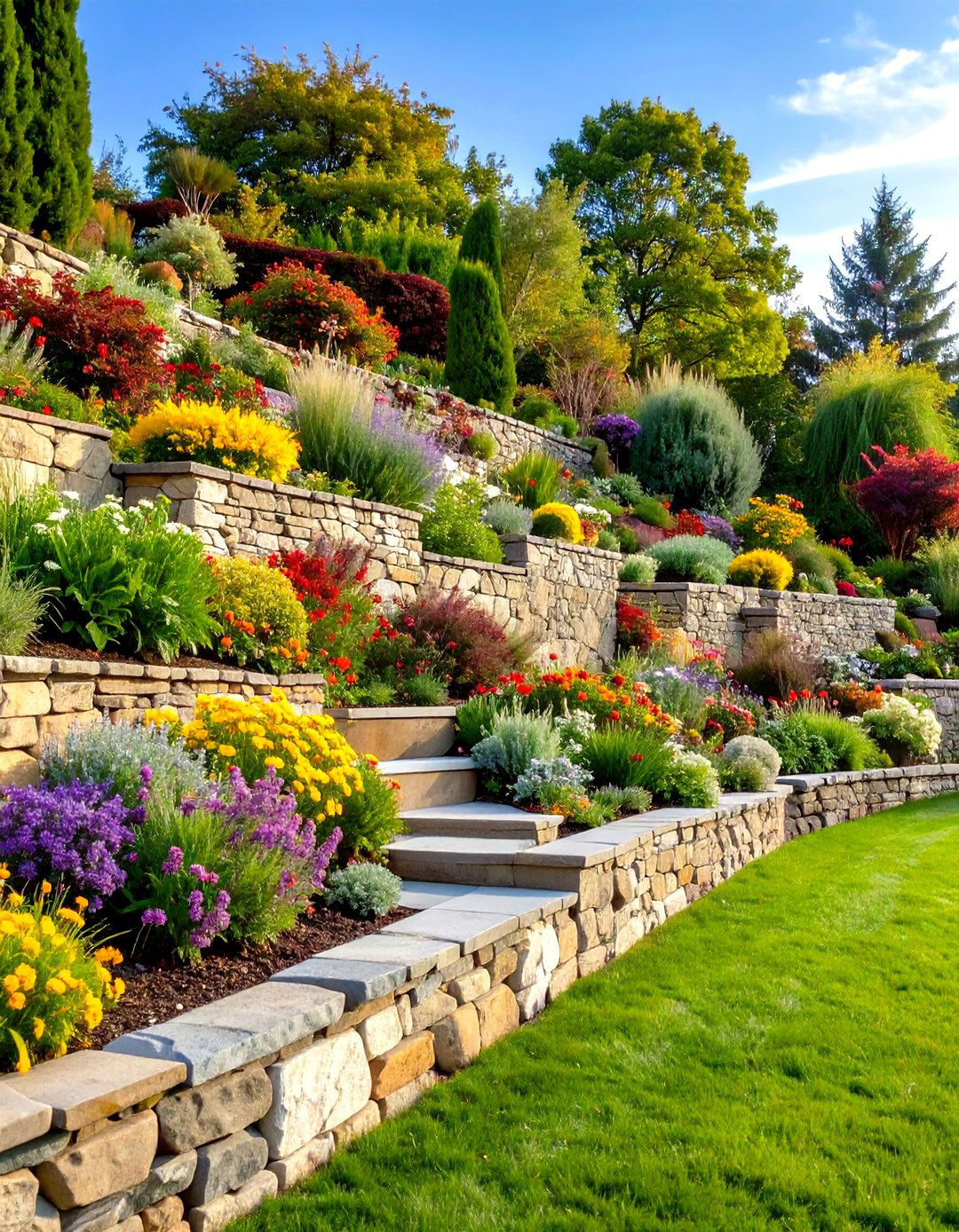
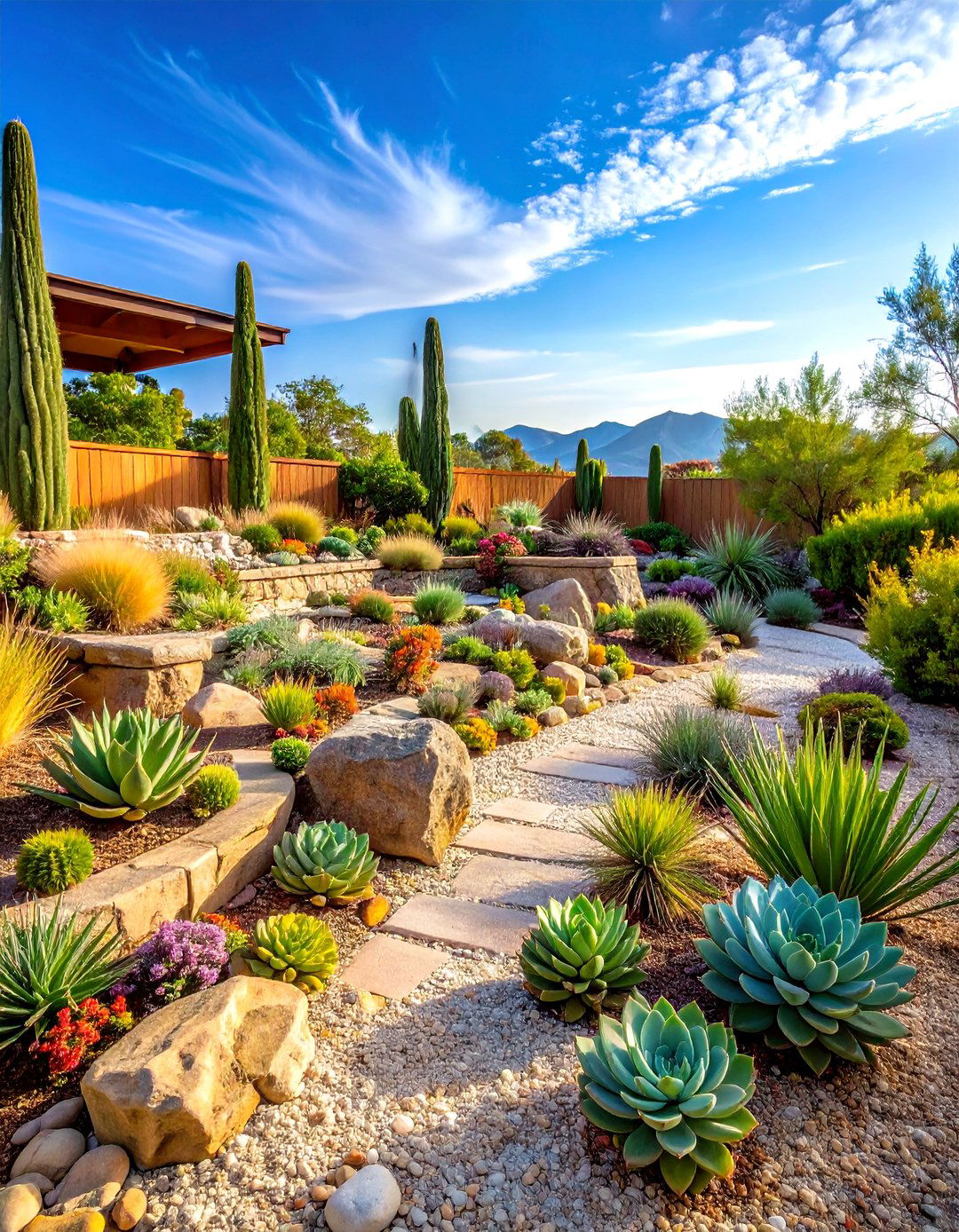
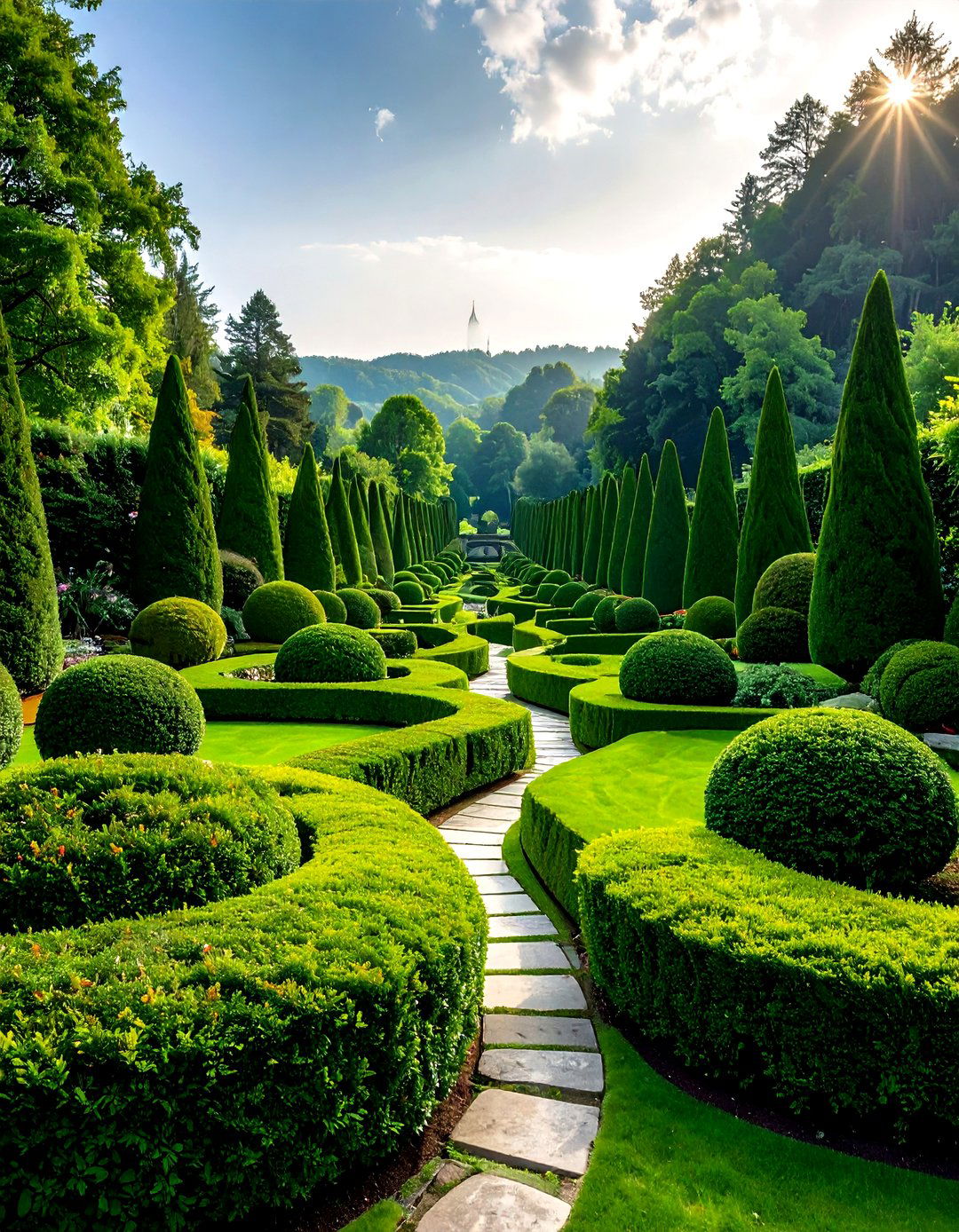
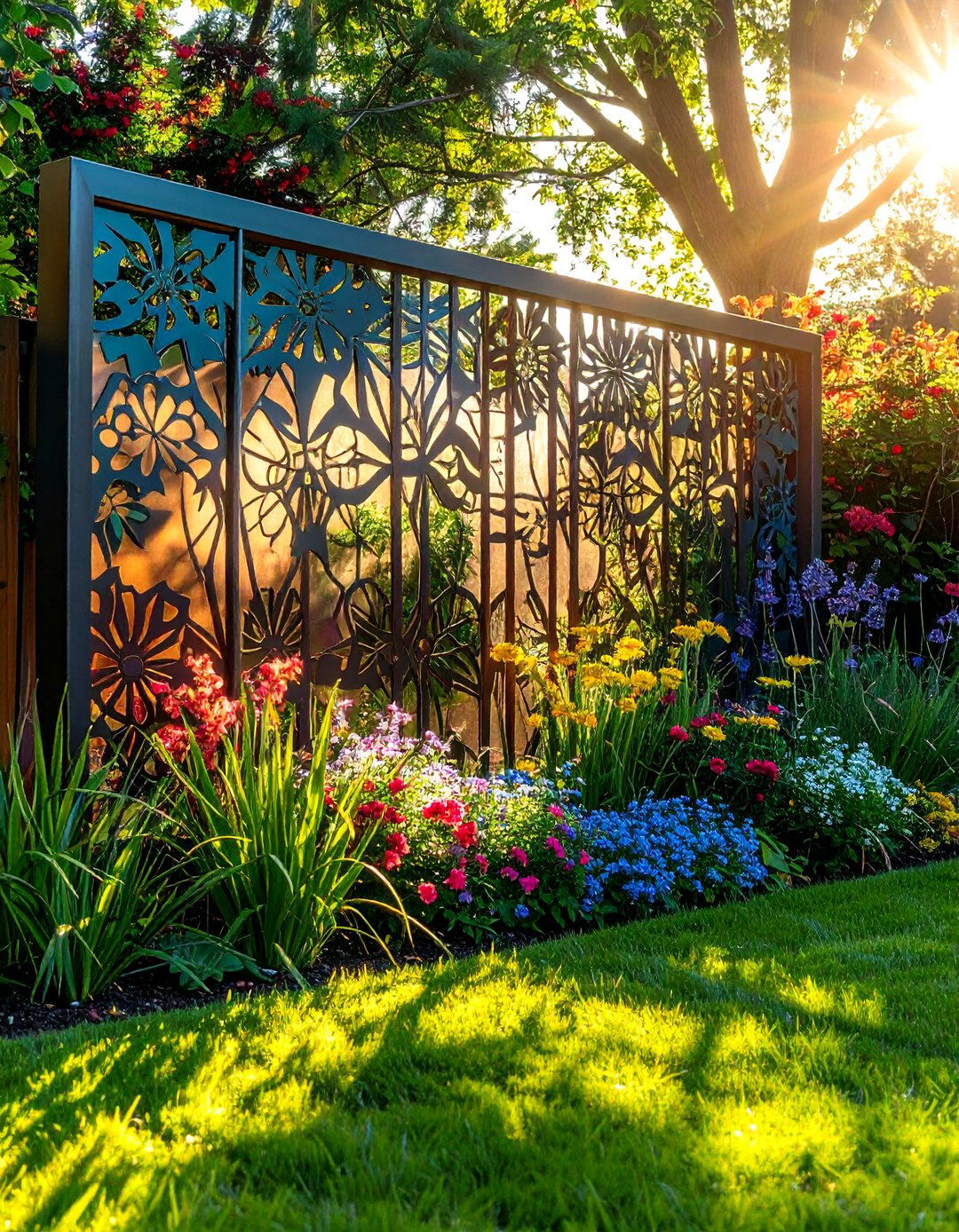
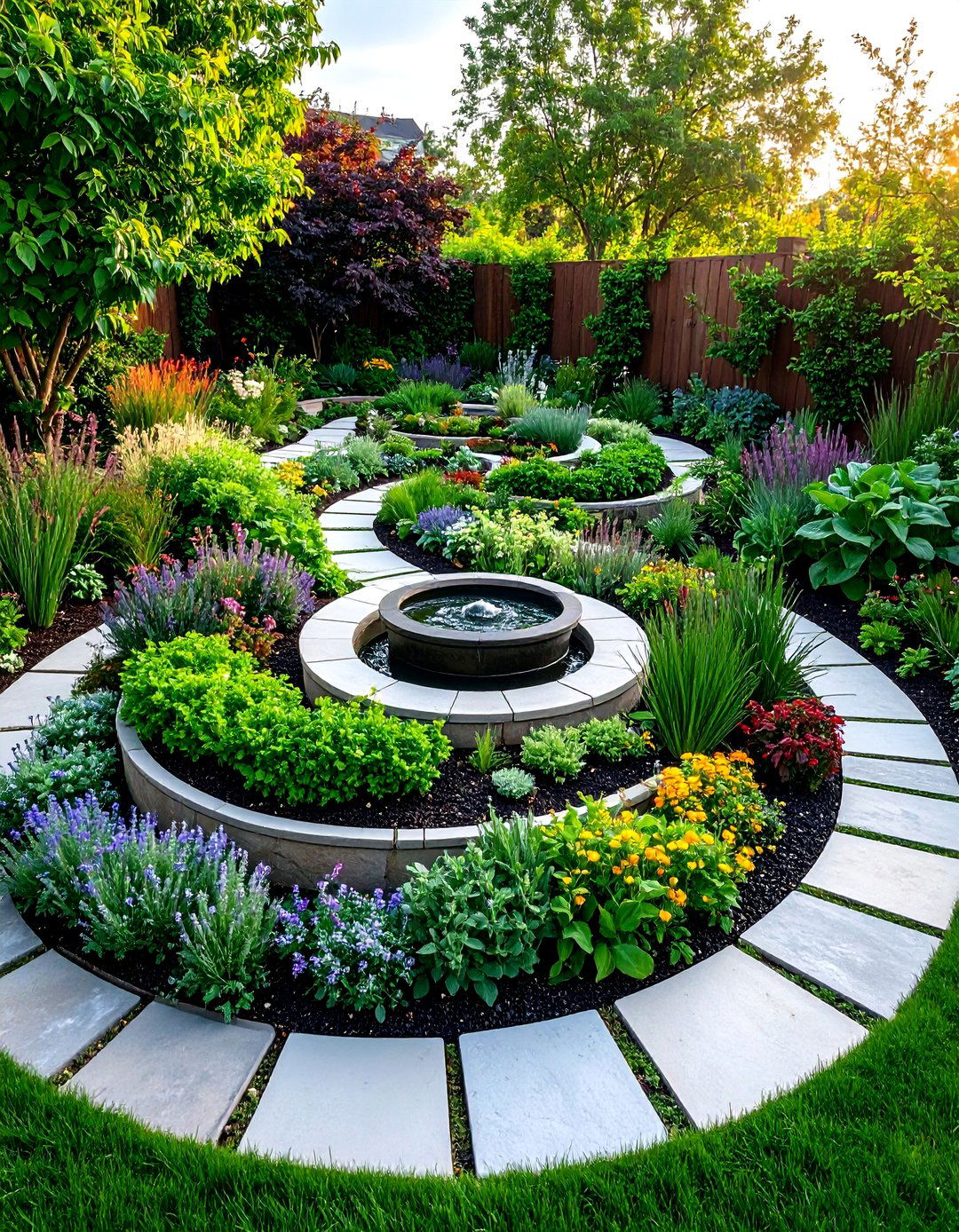

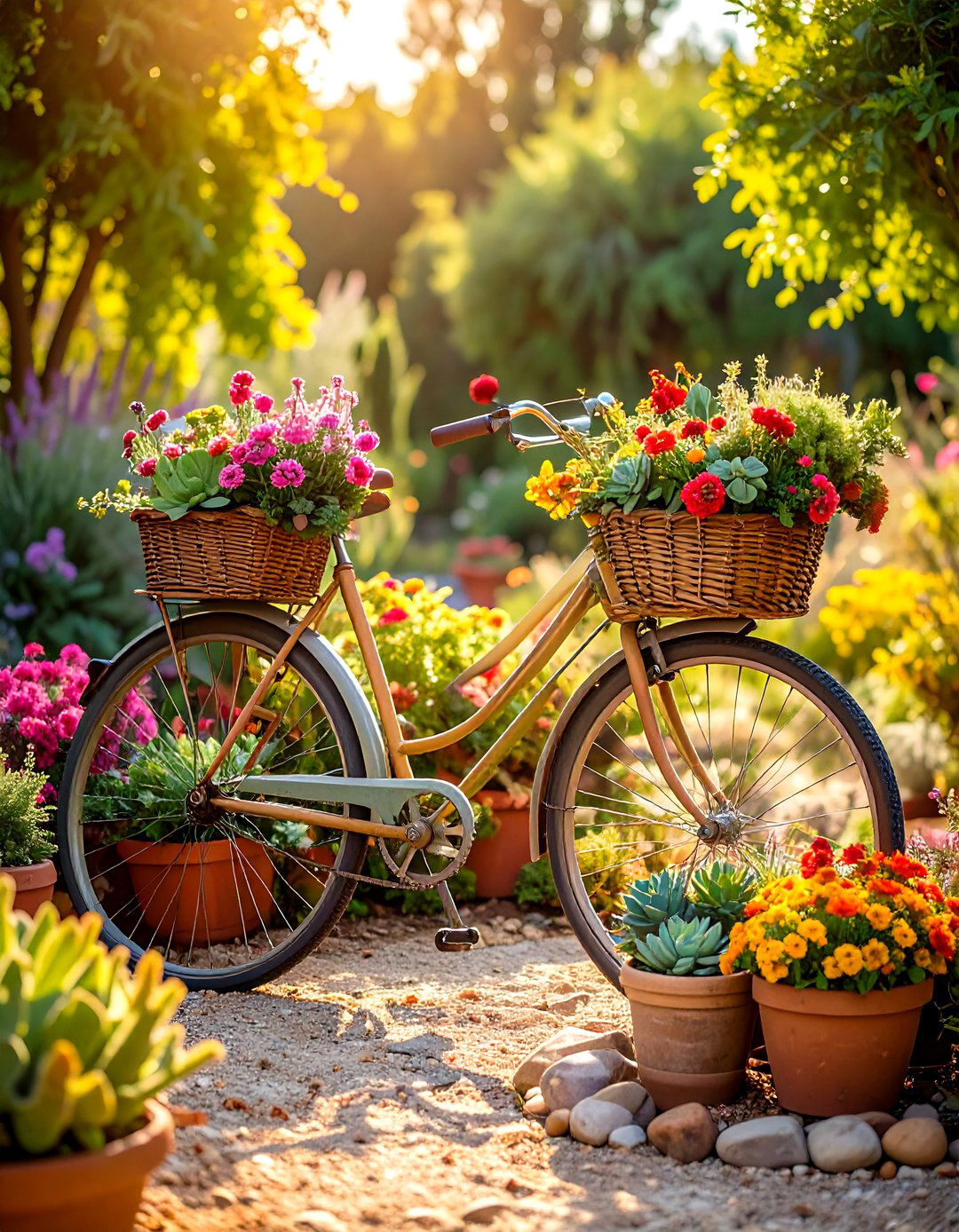
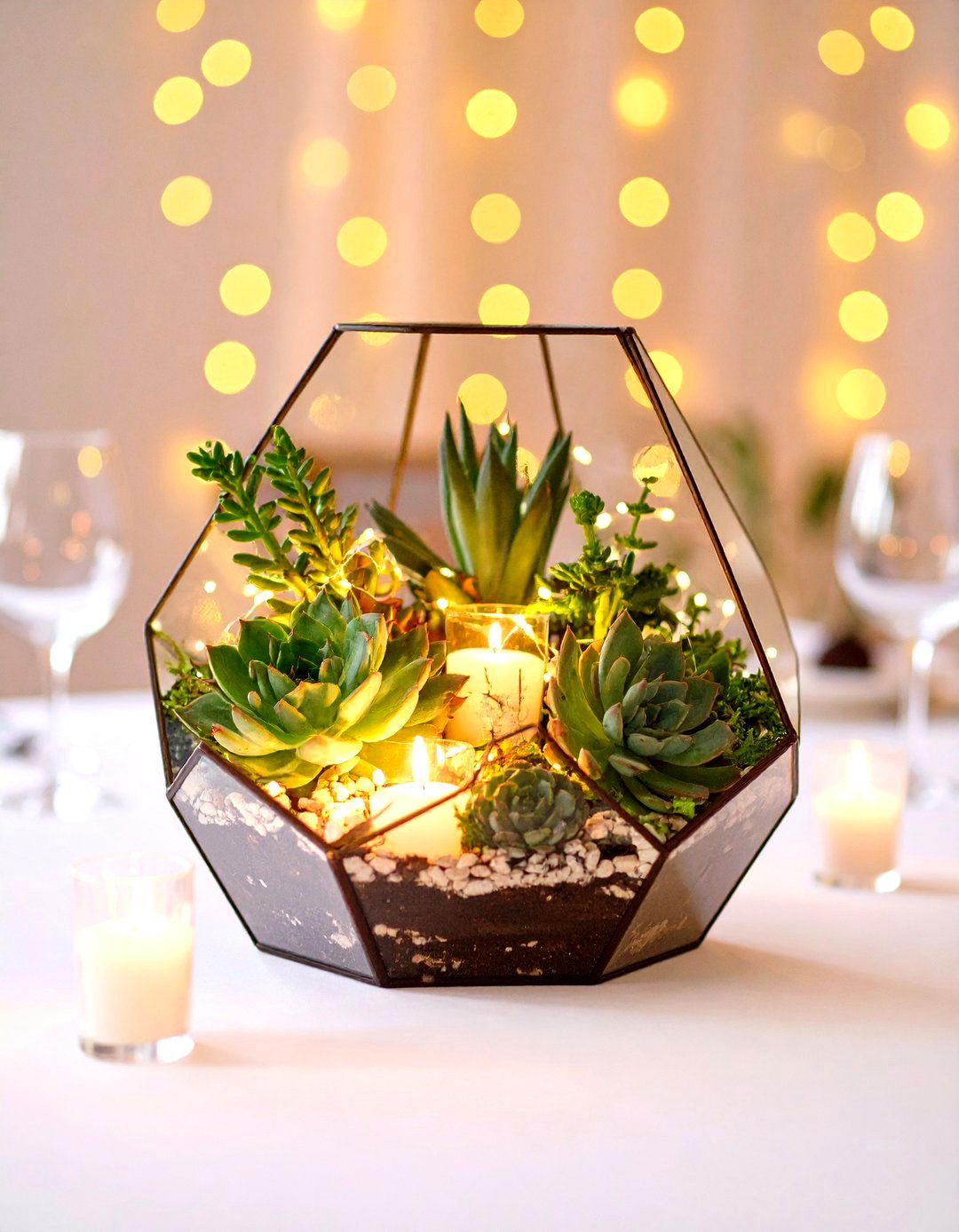

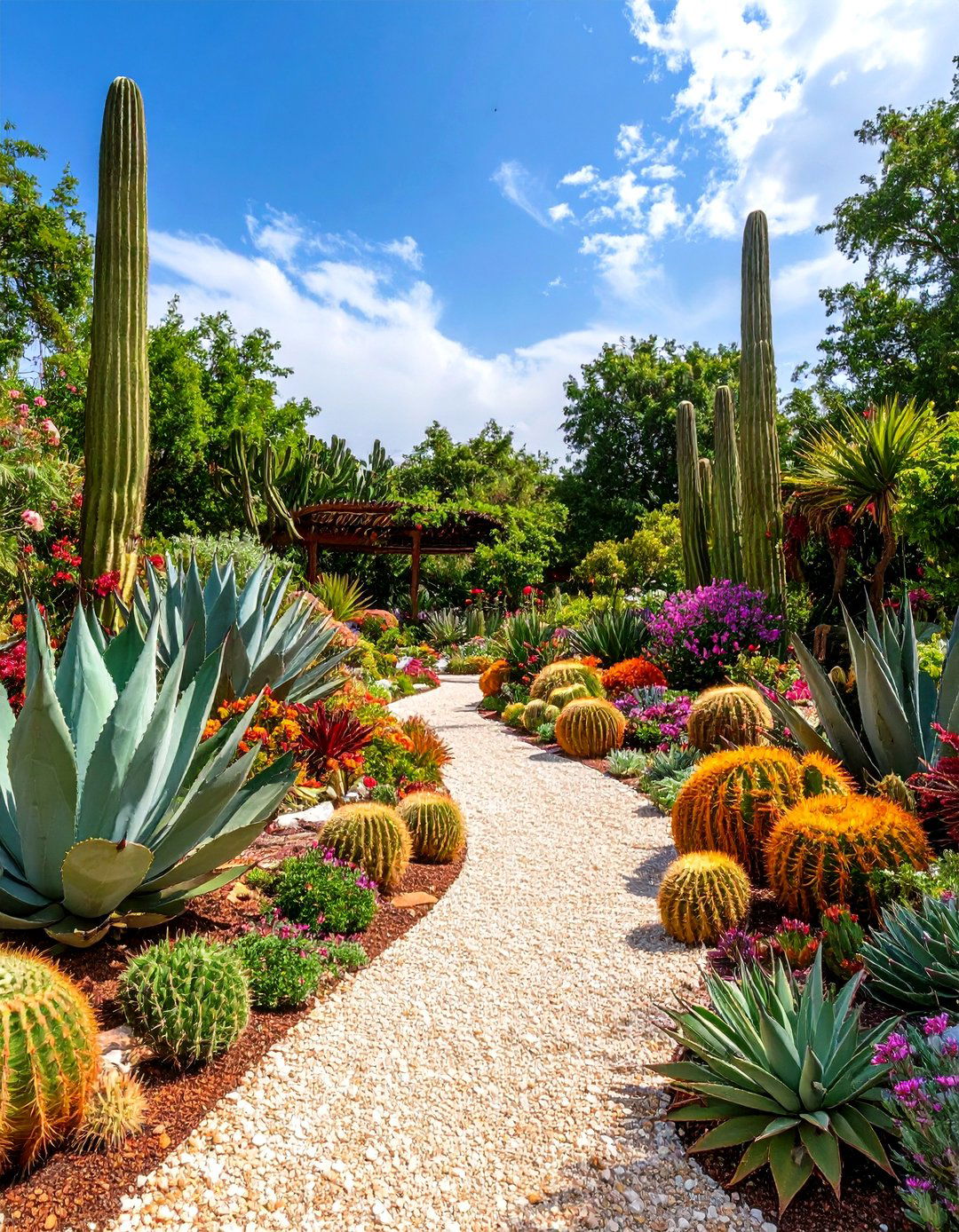


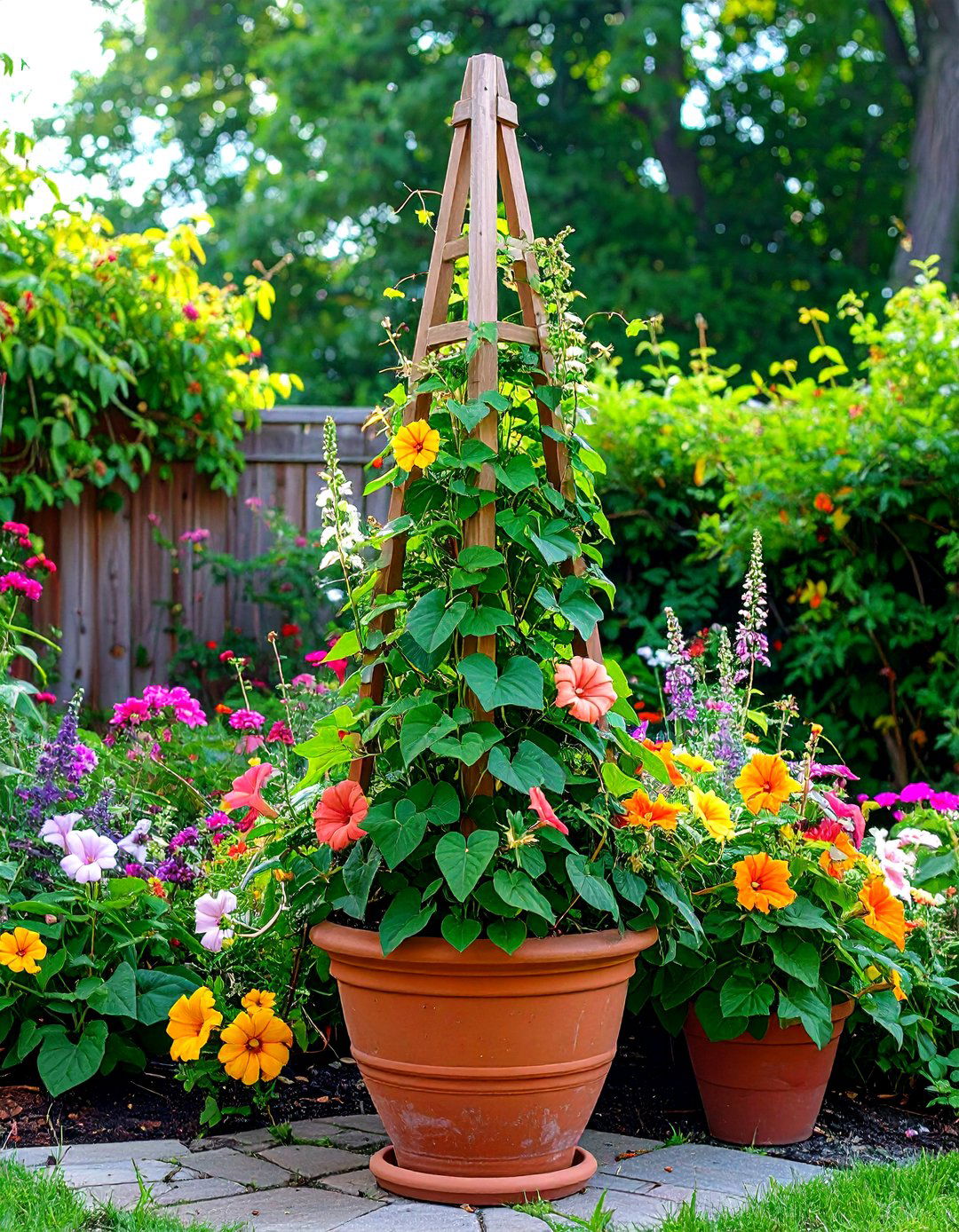
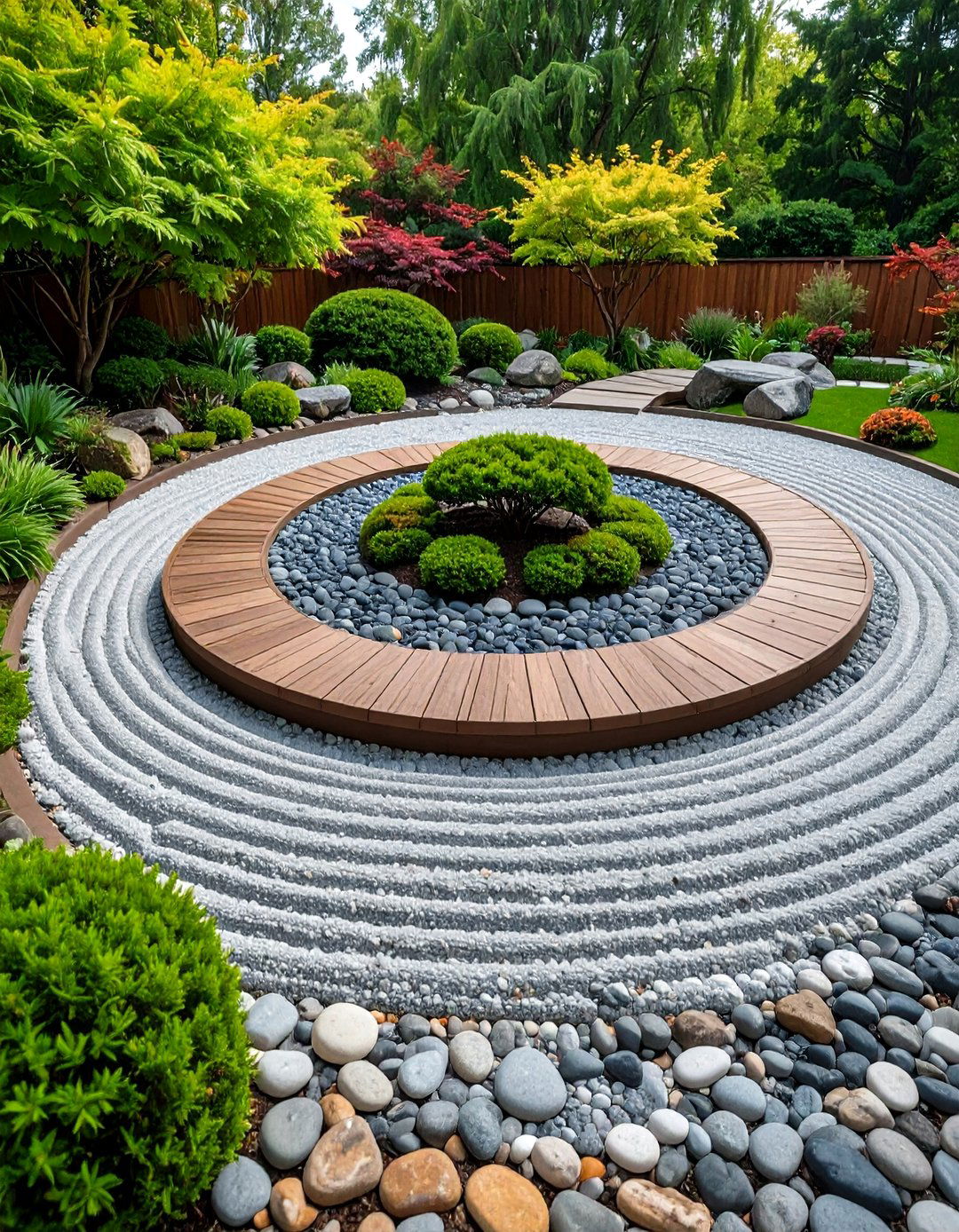
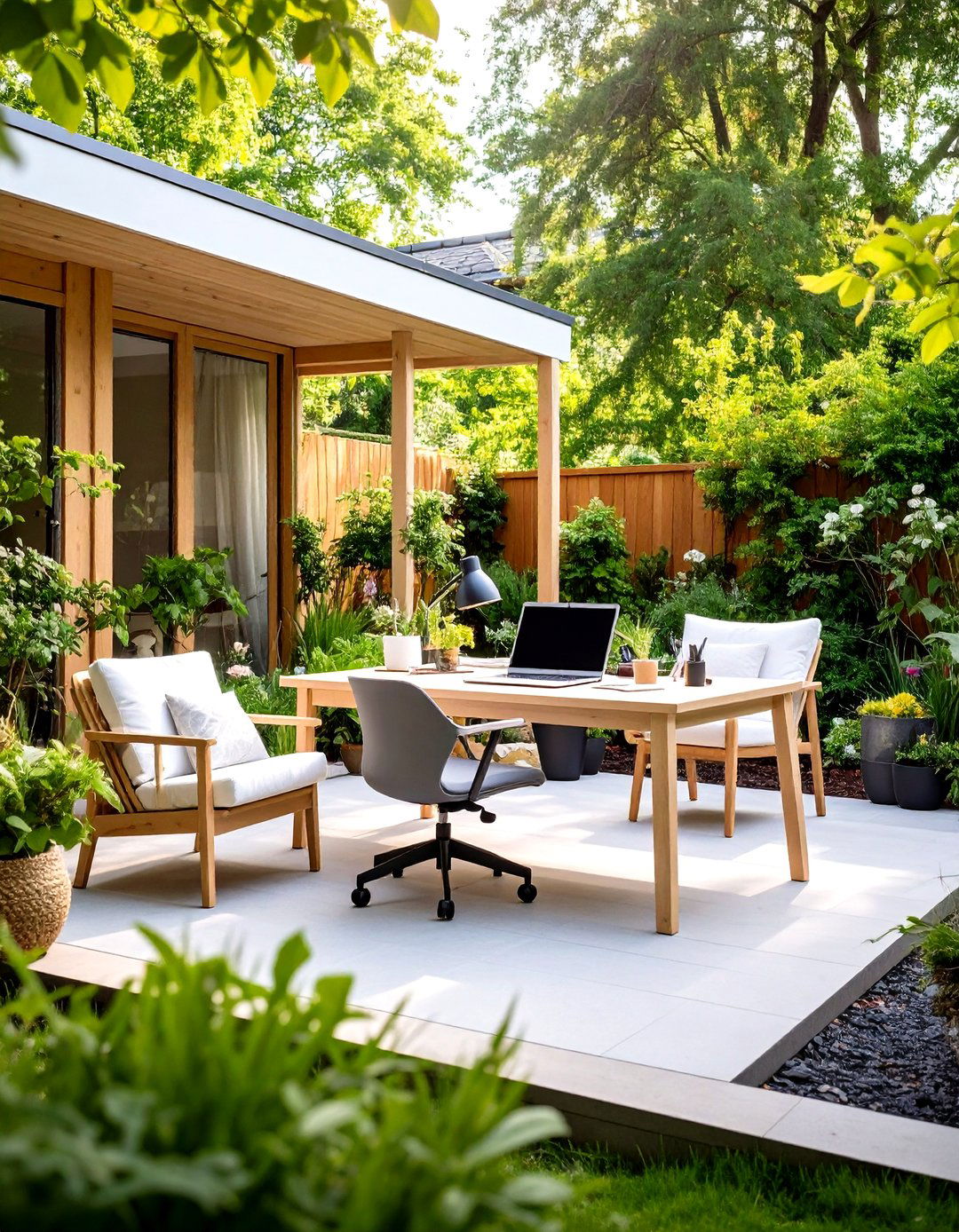
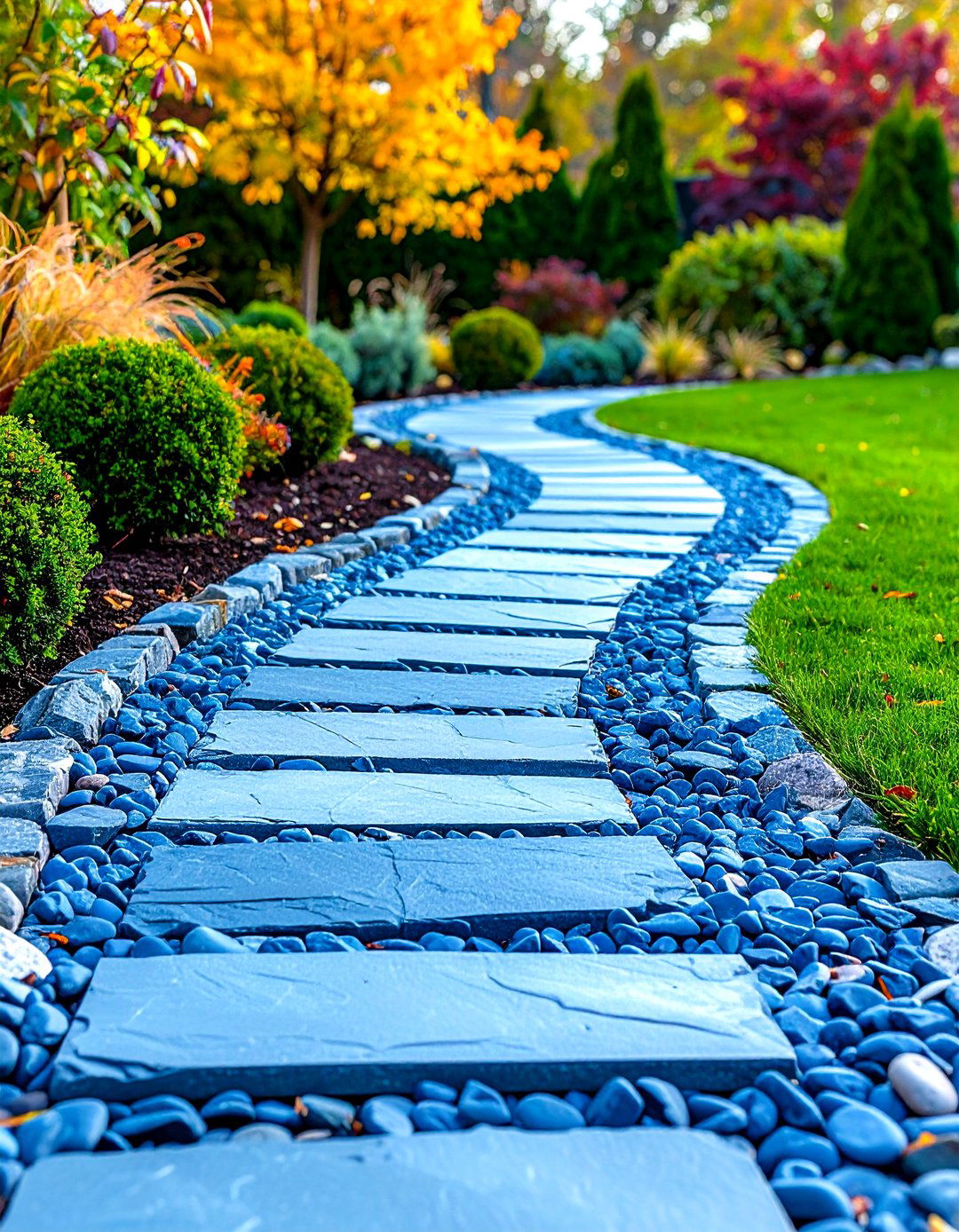

Leave a Reply